This homesteading lifestyle means we are ever learning, and that’s part of the excitement and joy we find in it. Learning new homestead skills or how to utilize old skills in a more modern, efficient way is one of my favorite things about this life.
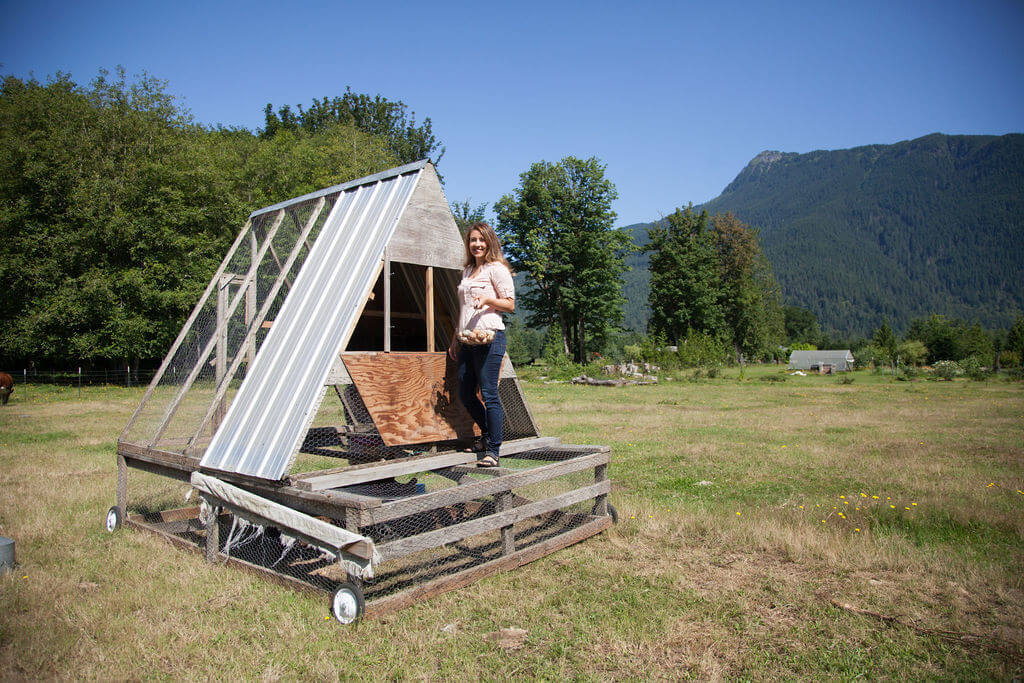
How Can I Be a Better Homesteader?
We’ve all asked ourselves this question a time or two. If you’re new to this homestead lifestyle, you may ask it often. But I’m here to tell you, even being a fifth-generation homesteader, I still ask myself this question.
Life is a continual classroom where lessons are learned, and skills developed. There are some essential basics I think are important for any homesteader, whether living on 40 acres or a small lot in the city. Even living in an apartment, you can begin to develop homesteading skills (like creating a no-waste kitchen) that you’ll use for the rest of your life.
If you’re just beginning your homesteading journey, you can quickly become overwhelmed with all there is to know and learn. I want to put your mind and heart at ease by telling you it’s ok. Take small steps. Choose the skills you want to learn, set the goals you want for your homestead, and just start. Dread of a thing is half the battle.
And by all means, learn these homestead vacation tips so you can confidently go on vacation without feeling overwhelmed.
I am a serious list maker. I always suggest to new and experienced homesteaders looking to be more productive to list homesteading skills they want to learn and just get started.
But no matter where you are on your journey, I hope you find some encouragement from this podcast. This is episode #355 and episode #358 of the Pioneering Today Podcast. All show notes and related links can be found throughout this post.
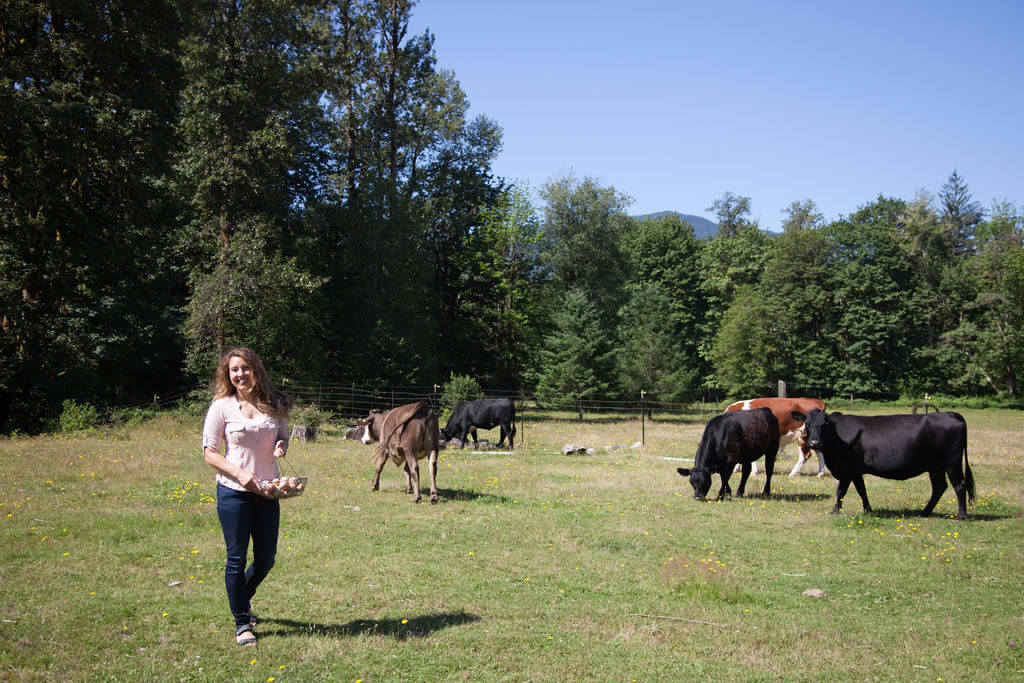
What is a Homestead Lifestyle?
Homesteading is essentially a lifestyle of self-sufficiency. However, I like to call it community sufficiency as very few of us can truly be self-reliant. Homesteading includes raising animals, preserving food at home, and cooking food from scratch. Sometimes this is done on a scale to sell or barter with others, other times, people are simply raising enough food for their family for a year.
Many of you haven’t grown up on a homestead like myself. It’s easy for me to forget that the term “homesteader” is foreign to so many. One of the reasons I call this podcast and my academy “Pioneering Today” is because I think many of us are pioneering our way through traditional skillsets of generations past.
As homesteaders, we’re a frugal, do-it-yourself kinda bunch. If there’s something we don’t know how to do, we’re likely to figure it out. Thank goodness for the internet and YouTube, am I right?
Before we jump in, I want to encourage you to start slowly. No one jumps in with both feet and masters everything all at once. That’s a recipe for burnout every single time!
This is especially true if you’re still waiting for your future homestead. Start learning these essential skills that don’t require acreage, so when you’re ready for more, these skills will be second nature.
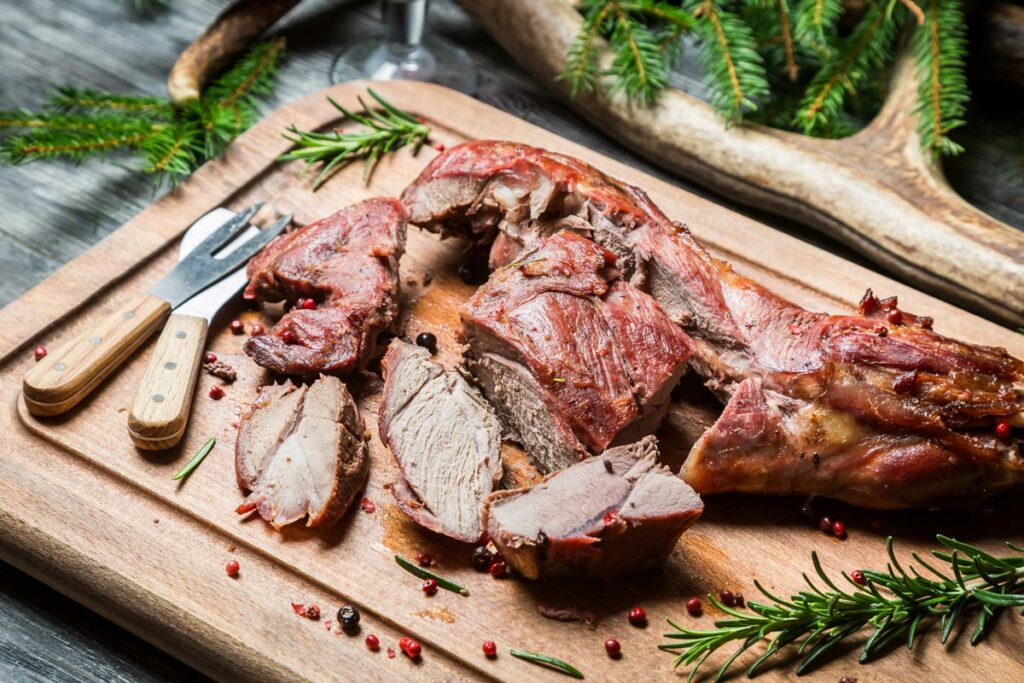
Essential Homestead Skills
Cooking From Scratch
I believe that skill sets should always start in the kitchen! No matter where you live, whether on a large homestead or an apartment in the city, we all have a kitchen, and we all have to eat.
Learn how to cook from scratch with different ingredients. Learn how to tenderize less expensive cuts of meat so they taste better. Learn how to use a slow cooker or a pressure cooker.
Master the skill of utilizing every last bit of each ingredient. This is why I always make homemade bone broth from meat bones and why I love making fruit vinegar from cherry pits that would otherwise be tossed into the trashcan. Furthermore, once those cherry pits have infused the vinegar, you can then turn them into a homemade hot pack!
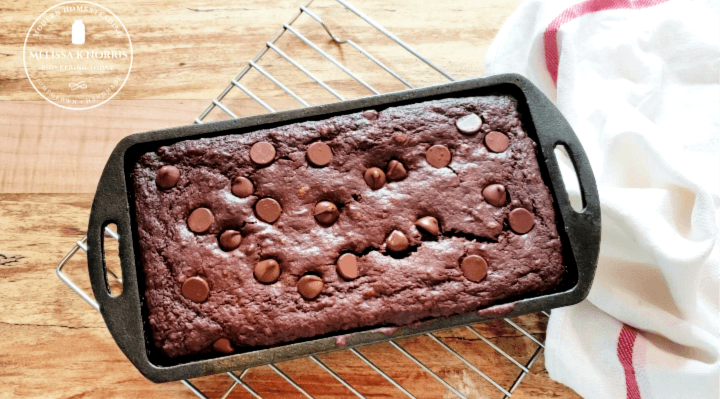
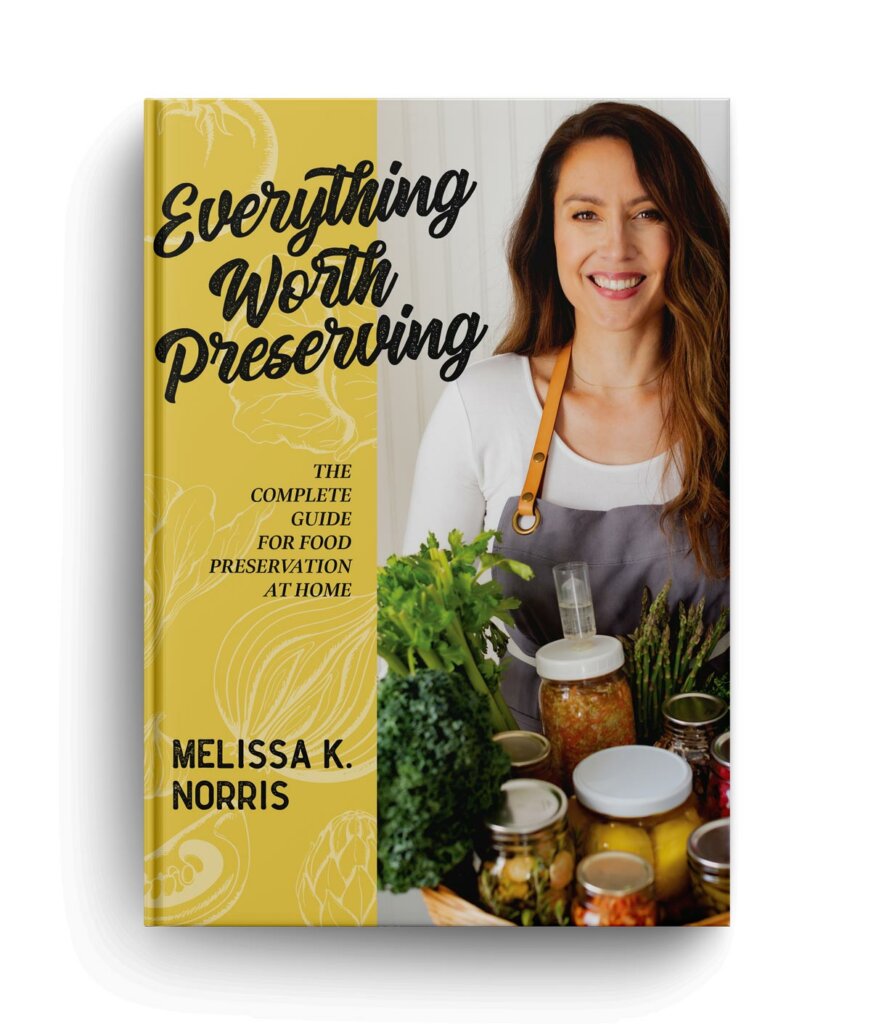
available now
Everything Worth Preserving
Take control of your food with Everything Worth Preserving by Melissa K. Norris! This ultimate guide to canning, fermenting, and more gives you the confidence to preserve food safely and sustainably. Don’t let your harvest go to waste—grab your copy today!
Baking
Cooking from scratch will always save you money. This doesn’t mean my loaf of homemade sourdough bread or even my quick five-minute no-knead Artisan bread will be cheaper than a loaf of Wonderbread from the store, but it will certainly be less expensive than their equivalent counterparts.
After you’ve mastered how to cook meats and how to utilize every bit of an ingredient, the next natural step is to start doing your baking at home. Bake your cupcakes, muffins, and quickbreads from scratch. Skip the boxed mixes and learn to make your own pantry mixes at home.
Check out this post on easy store-bought ingredients you can swap out at home to improve your health.
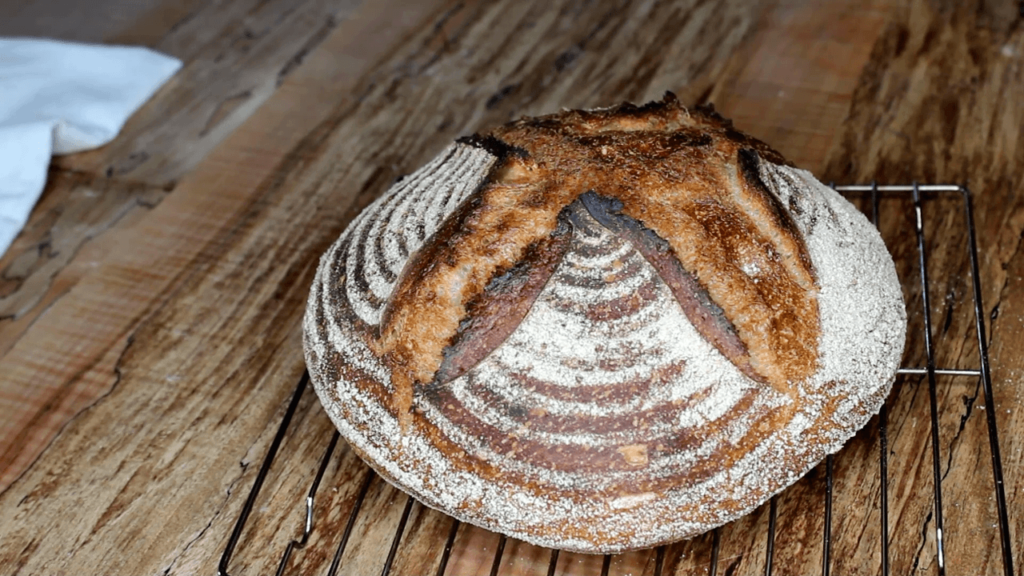
Sourdough & Fresh Ground Flour
After gaining confidence with baking, start grinding your own flour from home and learning the art of sourdough bread making.
When you buy whole grain, you save money and end up with a much fresher and healthier product. (Source) Learn more about grinding your own grain here.
Basic sourdough bread requires only three ingredients, salt, flour, and water. No yeast is required! Learn how to make a sourdough starter here, and once you have it going, you can make all kinds of delicious goodies like sourdough pancakes and my favorite sourdough chocolate quickbread.
Check out my FREE sourdough training if you’d like to take your sourdough game to the next level.
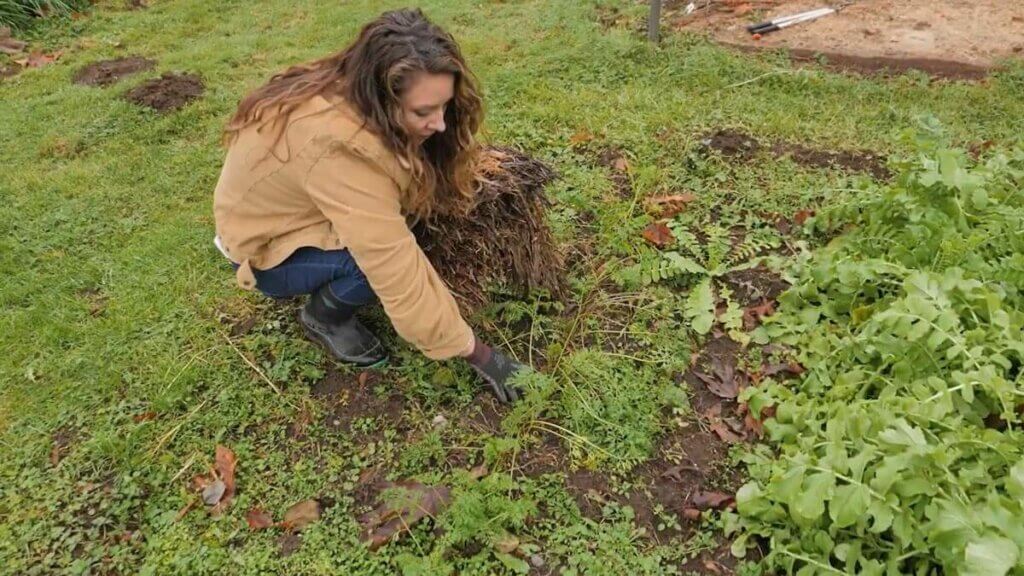
Items to Grow or Make Yourself
The next step in the homesteading journey is to look at the foods you eat on a regular basis and decide if some of them can be grown or raised on your property.
Foods like eggs, chicken, lettuce and carrots can all be raised or grown simply without much space. But these things do take some know-how and training to be proficient.
If you’re not sure where to start, grab my FREE charts on how much food to plant per person for a year’s worth of food.
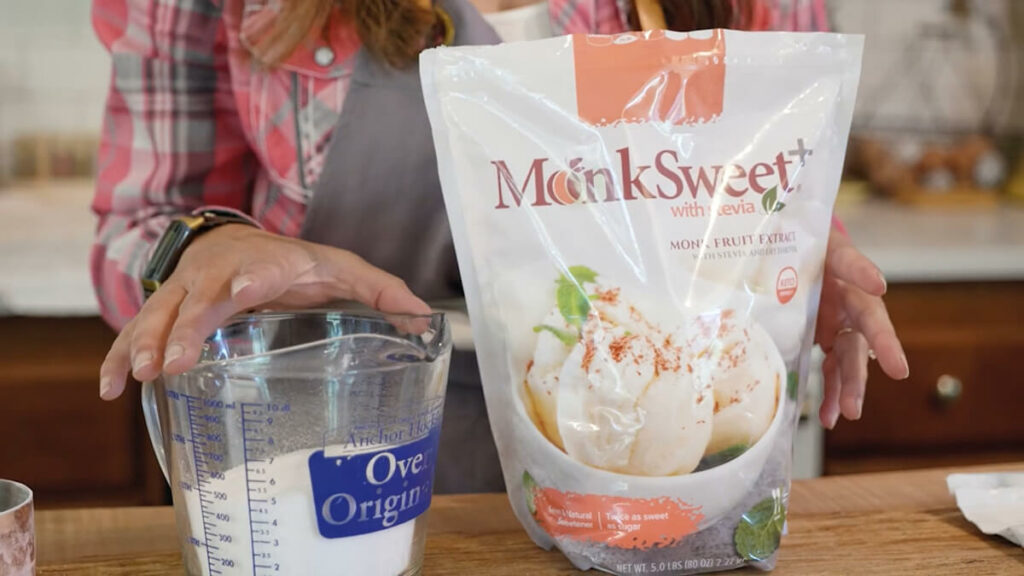
Source Locally (When Possible)
Not everyone has enough acreage to raise their own beef cattle or keep a dairy cow, so when you can’t raise or grow the food yourself, start looking locally or sourcing your food from a place you trust.
This is why I love Azure Standard. I have been buying from them for nearly ten years, and I love that many of their products are fairly local to me.
For those items we can’t source locally, such as vanilla beans, sugar and wheat berries, I love that I can purchase these items from Azure, which helps me build up my long-term food storage supply.
Azure Standard is a sponsor of this podcast, and they’ve been so generous to offer all of my listeners 10% off your first Azure Standard order (minimum of a $50 purchase) using coupon code “Melissa10” (must be a first-time customer).
Beyond being able to find products at the grocery store or growing them yourself comes the concept of “community sufficiency.” This is where you work alongside your neighbors and community to provide for each other what the other produces.
This may look like one person raising enough meat chickens for two families while the other raises a dairy cow and has a milk share. Or perhaps you grow a beautiful medicinal herb garden that produces enough herbs for the neighborhood.
Get creative with what your skillsets are and find ways to build community.
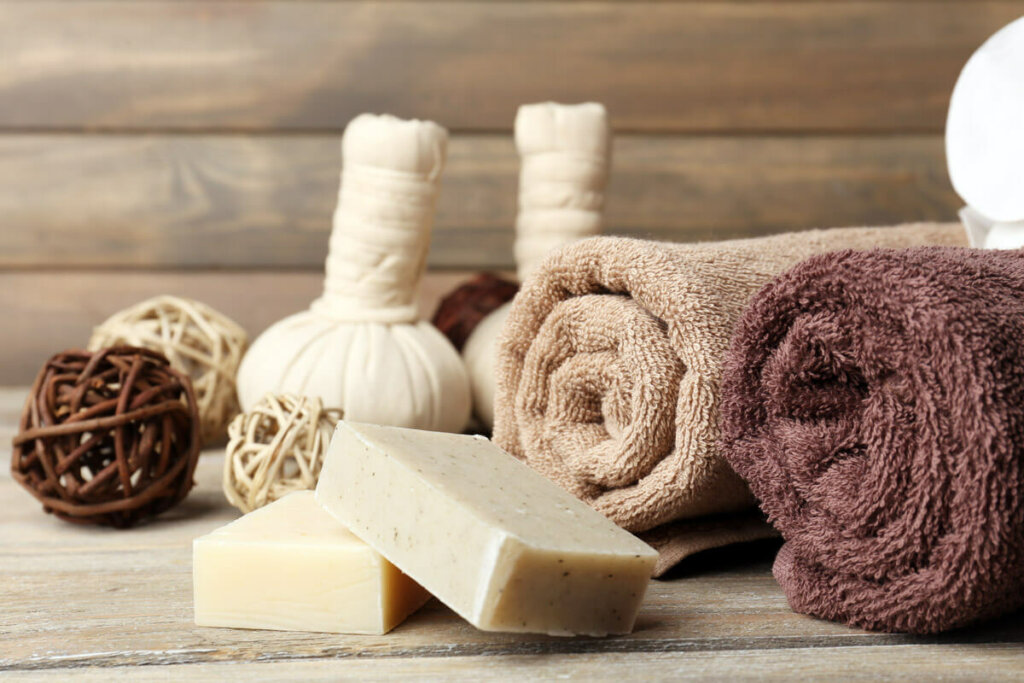
Medicine, Cosmetics & Cleaning Products
When I started having health issues, it was natural to just look at the food I was eating as the culprit.
But once I cleaned up my family’s diet, I realized that if I’m so concerned about what I put in my body regarding food, I should be equally as concerned about what goes on my body. (Source)
Specifically the medicine I’m taking and the products I’m putting on my skin, both in my cosmetics and the cleaning supplies I use daily.
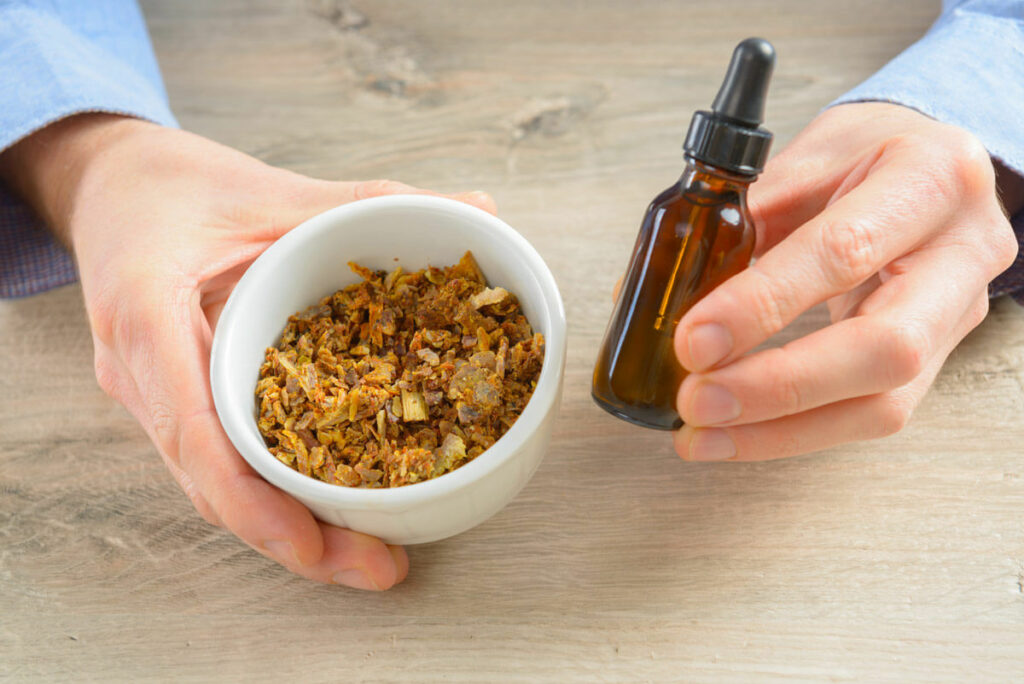
Medicine Cabinet
I was a pharmacy technician for eighteen years, but with what I know now as a home herbalist, I would never return to a modern medicine career.
So many herbs work with our bodies and do good. (Source) Often times with diet and lifestyle changes, we’re able to get off prescription medications rather than being reliant on them for the rest of our lives.
Don’t simply get rid of your prescription medication because you’ve changed your lifestyle. Always work with your doctor.
There are many herbal alternatives when it comes to over-the-counter (OTC) medications such as acetaminophen or cough medicine. (Source) (Source)
It’s important to note that I am not a certified medical practitioner. This post is not intended to diagnose or treat but is for informational purposes only. Please contact your healthcare professional before introducing new herbal and natural remedies into your wellness routine.
If you haven’t taken the plunge into herbal medicine, I highly encourage you to do so. In fact, I’ll be hosting an herbal medicine class in the fall of 2022, so sign up to my email list to be notified!
If you don’t have access to high-quality herbs, be sure to check out Farmhouse Teas. I know CeAnne and her family personally and love supporting another small family-owned and operated business.
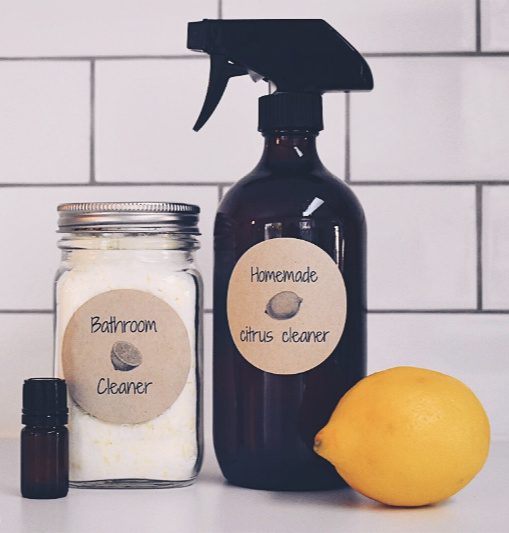
Cleaning Products
It can often be a shock when people start looking at the ingredients in their cleaning products.
Some of the first products we got rid of in our home were commercial oven cleaners and candles with fragrance.
From there, we looked at our laundry soap (we’ve been using TrulyFree laundry detergent for many years now and love it. That link will get you 100 FREE loads of laundry detergent!), our shampoo and body soap, even the soap we use in the kitchen. Seeing “fragrance” in any product is now a no-no in our home. (Source)
For the majority of our cleaning throughout the home, we simply use baking soda and vinegar or water and soap. (Make your own homemade vinegar.)
If you want to get into making all your own homemade products, check out my book Handmade where I share recipes for homemade laundry detergent, cleaning supplies, and even bar soap.
Cosmetics
As for cosmetics, this can be tricky to know for sure you’re getting a quality product that not only works but is healthy. Read this post on why makeup and skincare ingredients matter and to find out the products I use.
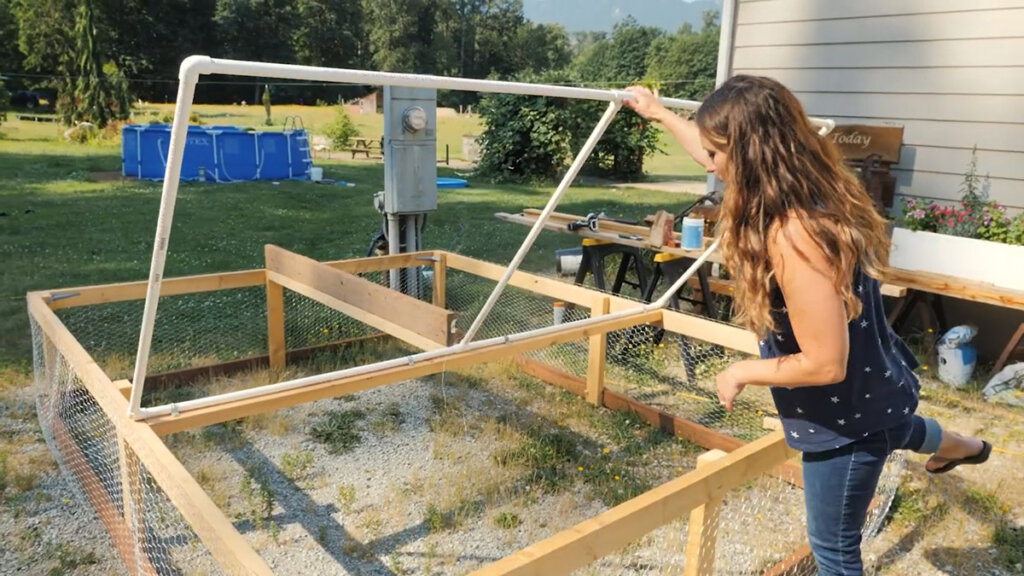
Basic Building Skills
If you’re going to live on a homestead, chances are you’ll need to make repairs at some point in time.
Having basic building skills means you’ll be able to set a fence post, repair a chicken coop, or help around the house with basic repairs as they come up.
Gathering these skill sets now so you have them when you need them later, will always end up saving you time and money.
Sewing & Mending
Today, it’s not always cheaper to make and sew your clothing. However, knowing some basic sewing and mending skills to repair a torn garment, sew on a button, or mend a hem will save you money from tossing the garment and buying new.
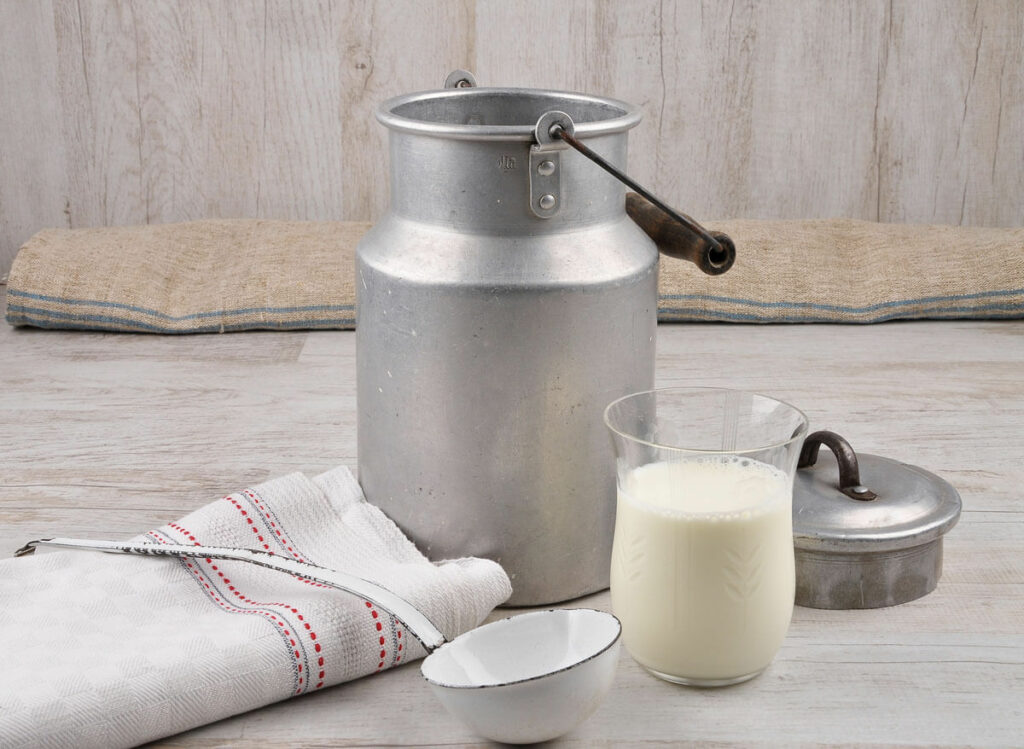
Learn How to Use Milk
Whether you own a dairy cow or goat, purchase raw milk from a farm, or simply buy milk at the grocery store, learn all the amazing ways you can utilize milk and turn it into various products.
Learn how to make homemade butter, cheese, buttermilk, soap, and lotions. In other words, utilize the milk to its fullest potential.
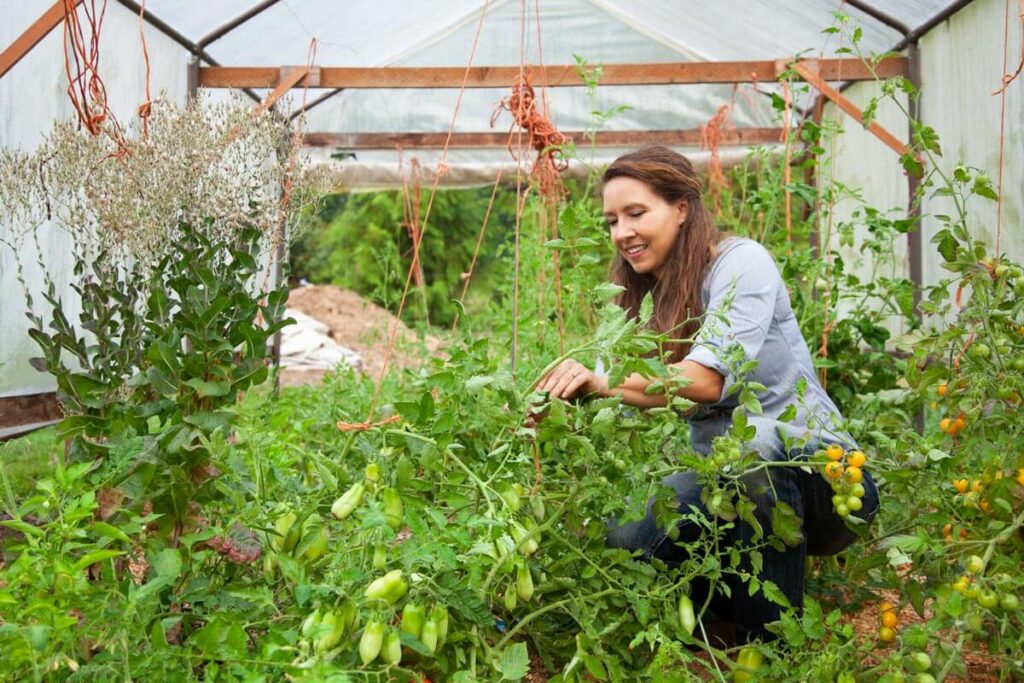
Learn to Garden
The best way to start growing your own food is with a jar of sprouts on the windowsill of your kitchen.
From there, you can get a small box and grow some herbs on a windowsill.
If you have a back deck or a patio, you can grow a good amount of food in a container. This won’t be enough space if you want to grow all your food, but you can certainly grow a year’s worth of herbs in a few containers.
I really like Greenstalk Vertical Planters because, with just one square foot of patio space, I can grow a lot of food! (Use code “PIONEERING” at checkout for $10 off your order!) Here are more vertical growing techniques for gardening.
Even if you don’t have the yard space to grow a garden, perhaps you can find a strip of land in the community and turn it into a community garden. This will help you start learning the skills needed to grow a garden.
If you want to learn more, be sure to check out my book The Family Garden Plan and The Family Garden Planner.
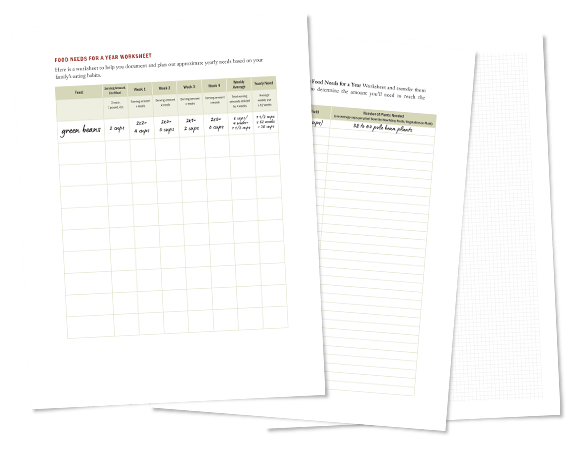
Growing in the Shoulder Seasons
Once you learn to grow during the regular seasons, you can begin branching out and learning how to grow in the shoulder seasons.
There are many ways to extend the season earlier in the spring and later in the fall with some cold weather growing techniques. By using a simple frost cover (or shade cloth for hot climates), you can dramatically extend your growing season and grow food nearly year-round.
Plant Perennials
The next gardening stage is planting perennial plants that will come back year after year. These are fruit trees, raspberries, strawberries, asparagus, elderberries, and medicinal herbs and flowers.
Keep Accurate Records
I cannot express how far-reaching this skill can be. Keeping accurate records can save you time, energy, money, and even the life of your livestock.
Birthing records can help you accurately remember how each animal did in childbirth and the specifics of it. This will help you know whether to breed that animal again or cull it from the herd or flock and whether you want to continue the line.
A garden journal (the Family Garden Planner has charts, worksheets, and more to help track everything in your garden) will help with accurate crop rotation.
It will give you information on what grew well and what didn’t, what you liked and didn’t. Keeping track of your soil maintenance and insect problems will save you heartache.
Get these free printables for your harvest and crop planning record keeping.
If you want to make a profit from your homestead, an accurate record of productivity, expense, and income will guide you. There are all kinds of records which will be helpful to you. You have to decide what you want from your homestead and choose your record keeping from there.
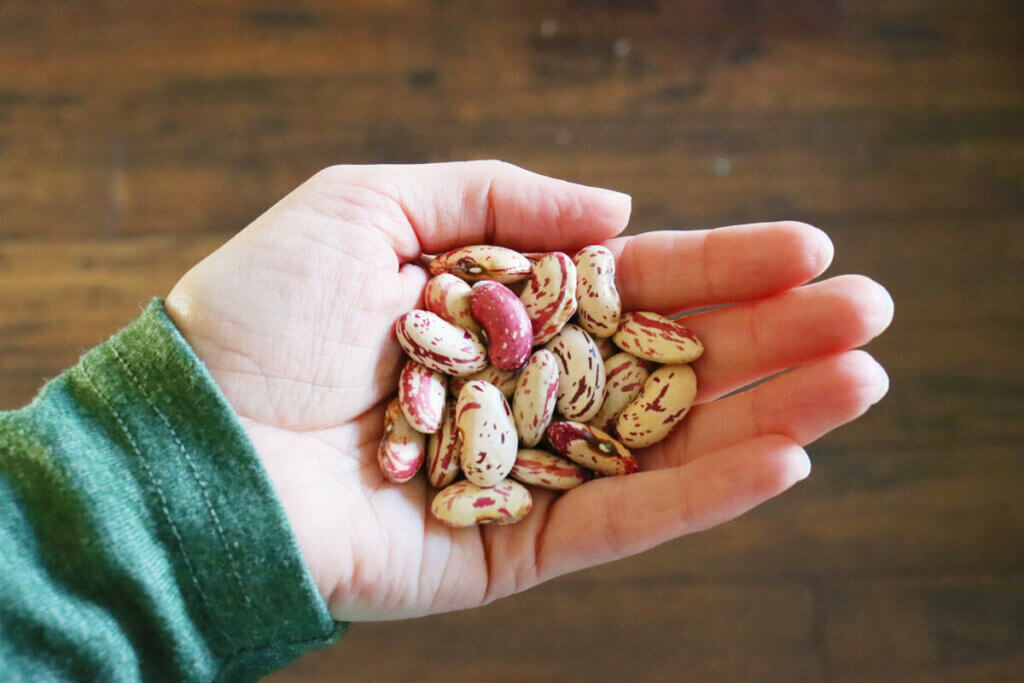
Seed Save
Save your seeds. Not only will this skill save you time and money, but it will also ensure you have what you need for growing next year’s crops.
The first step is to choose your healthiest plants and allow the fruit to mature its seeds in the garden. When you properly harvest and preserve healthy seeds, they will be viable for years.
Read this post for a few tips that will help when saving seeds from the garden.
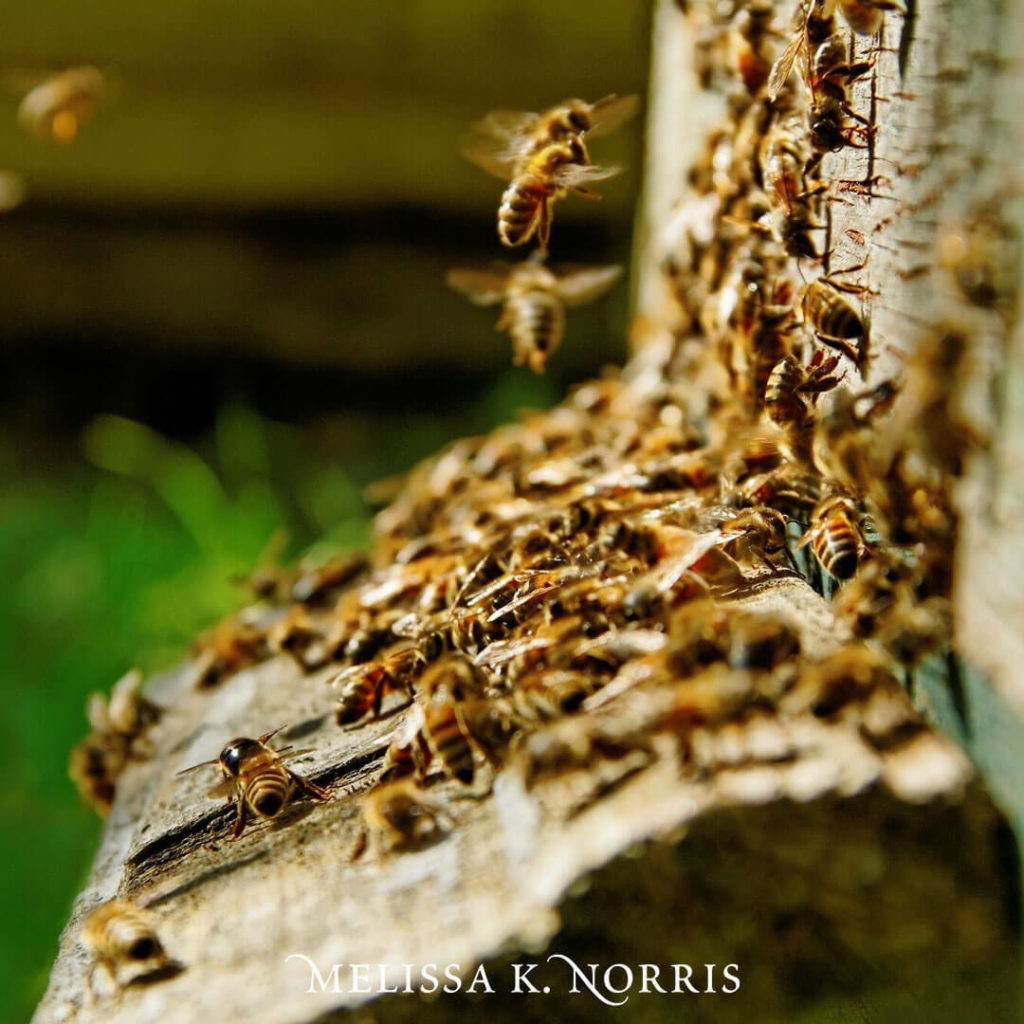
Beekeeping
Having bees is a benefit to any homestead, no matter the size. Their honey and its many health benefits, not to mention its deliciousness, are reason enough to want them.
Their pollination work, however, is vital. We can support them by planting fruits, veggies, and flowers for them to eat, and they reward us with honey and pollinated plants. Win-Win!
Learn how to start beekeeping and the link between honey bees and plant medicine here.
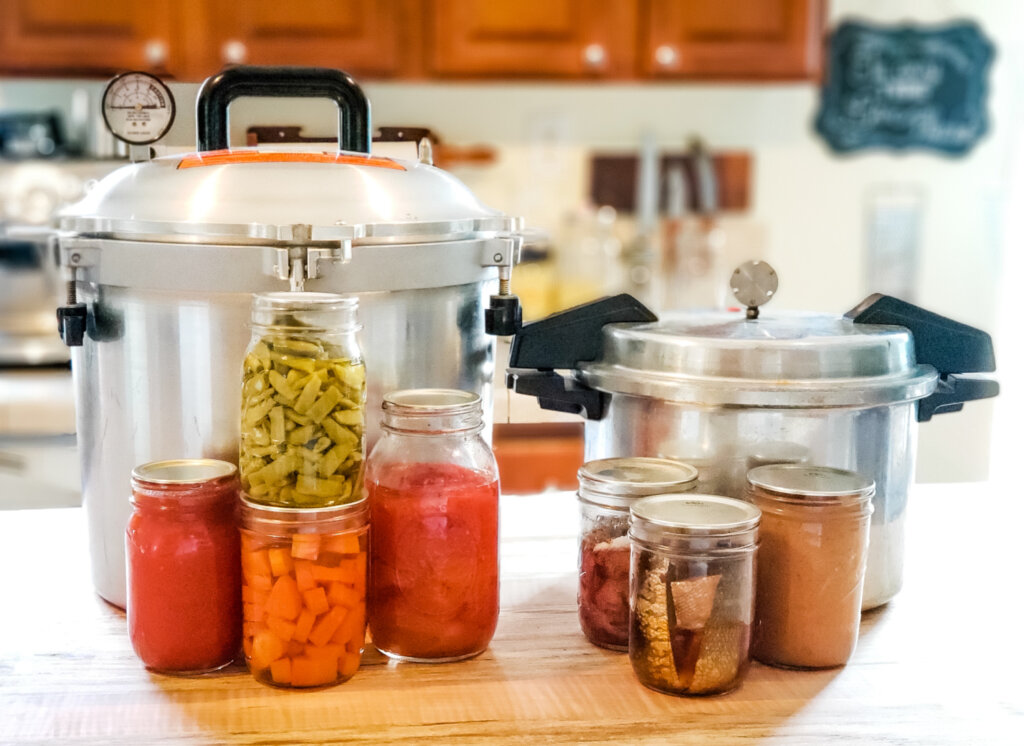
Food Preservation Methods
Preserving the harvest is one of the most basic homesteading skills. You’ve put time, energy, and money into your crops, so you don’t want to waste them. This skill will ensure your food supply for years to come.
I highly recommend you grab my book, Everything Worth Preserving, where you’ll discover the nine home food preservation methods to safely store delicious food for year-round eating with my step-by-step tutorials, recipes, and easy-to-use charts.
Get ready to learn everything you need about cold storage (aka freezer), water bath/steam canning, pressure canning, dehydrating, fermenting, freeze-drying, root cellar, infusion, and salt/curing!
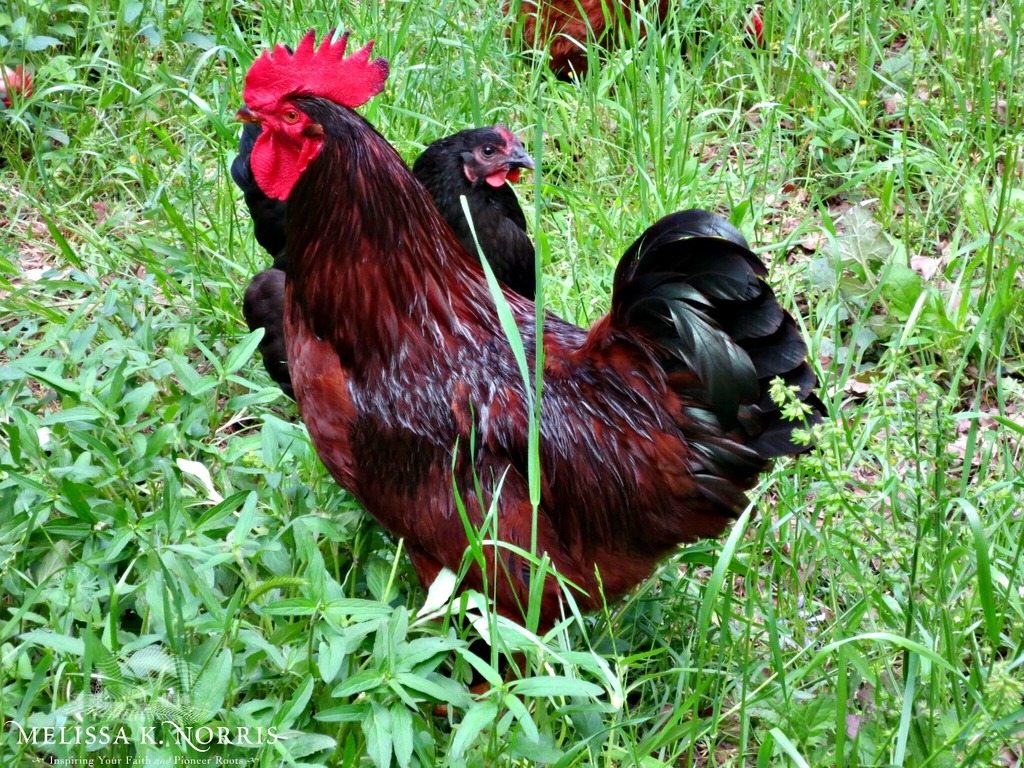
Learn to Raise Poultry
Raising chickens for meat and eggs is oftentimes the “gateway” into homesteading. We raise and butcher our own meat chickens, as well as cattle and pork for meat.
Many people start with backyard egg-laying chickens. Some homesteaders have a wide variety of fowl, from quail to geese (read here on raising ducks for eggs). You will have to decide for yourself what you want for your homestead.
You will also have to choose the right breeds for your goals and climate. Besides eggs and meat, you’ll have a source of entertainment and endless pleasure.
Check out these articles for more on raising chickens.
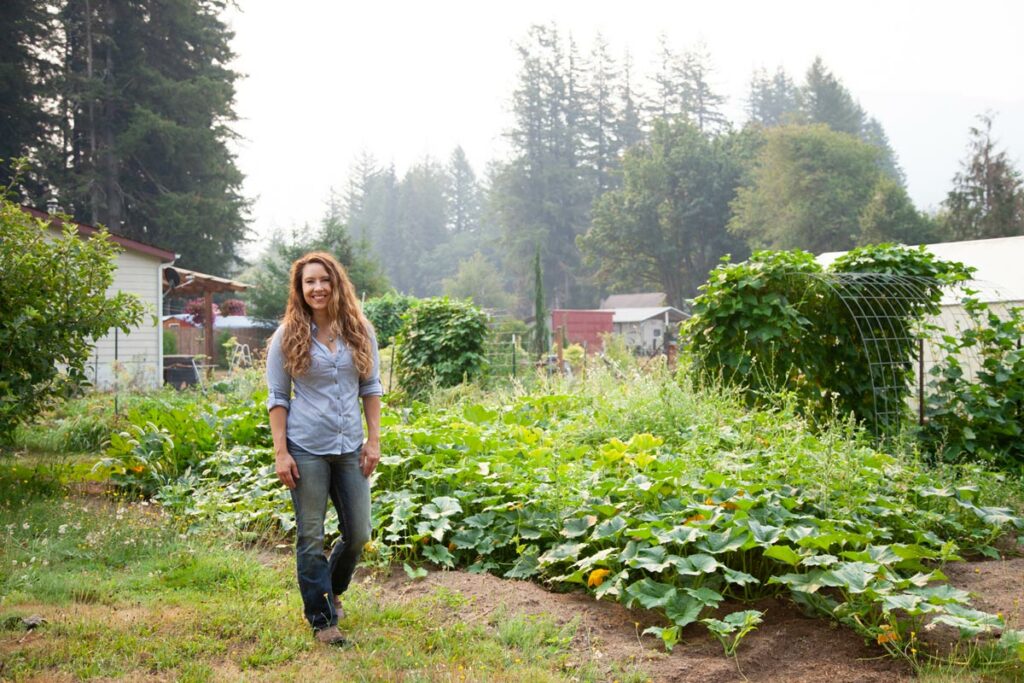
Perseverance + a Can-Do Attitude
Regardless of circumstances, we can all have a “can-do” attitude regarding what we can do right now. We’ll never get there if we constantly look at the circumstances keeping us from living our dreams.
But if you look at your circumstances and are constantly asking yourself what you can do, you’ll be prepared when the opportunities for more arise.
I’m not suggesting this list is comprehensive. It’s only meant to be a list of basic skills for the modern homesteader. We could go on for hours on each of these skills and add endlessly to the list.
If you’re looking for even more inspiration and want to take your homesteading skills to the next level in a matter of days, get your tickets to the Modern Homesteading Conference. This in-person event is hosted in the Pacific Northwest in beautiful Couer d’Alene, Idaho, and will be held on June 30-July 1, 2023.
I’m also hosting an in-person event here on my homestead where you can learn some of these essential skills. For dates and ticket information, visit my in-person workshops page here. I hope to see you there!
Verse of the Week: Because three podcasts are combined in this blog post, I go over these three verses: Romans 5:3-5, Romans 6:20-23, & Galatians 6:2-4
Resources Mentioned
- Homestead Living Magazine
- Keeping a Family Milk Cow – I purchased this book through Azure Standard.
- The Art of Natural Cheese Making
- Time-Saving Tips on the Homestead
- Time-Saving Tips When Cooking From Scratch
- Time-Saving Tips for the Garden
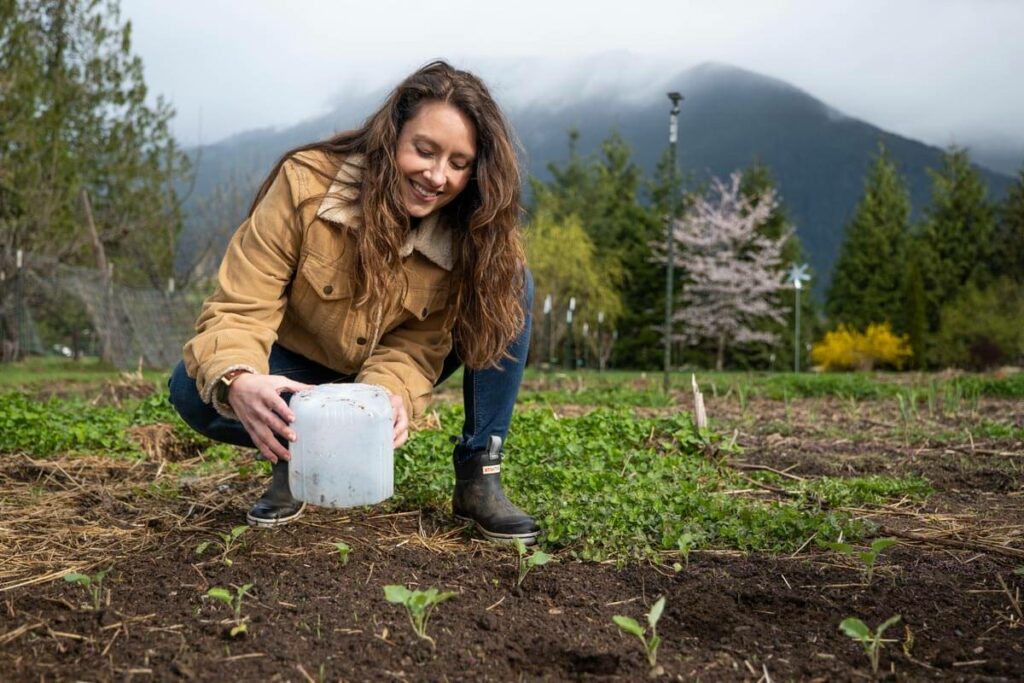
More Posts You May Enjoy
- A Military Wife’s Look on Homestead Preparedness
- 17 Self Sufficiency Tips from the Great Depression
- 10 Things Our Grandparents Reused During the Great Depression
- 6 Things Our Great-Grandparents Did Better Than Us
- How to Find & Buy Land Beyond the Usual Routes
- Time & Budget Saving Tips from the Great Depression
- 5 Life Lessons from the Great-Depression
- Great Depression Era Money Saving Tips w/ Potatoes
- 7 Depression Era Tips to Stretch Your Food Budget
- 8 Depression Era Tips to Save Money Now
- Time Management Skills for the Homestead
Hey, Pioneers. Welcome to episode number 388. Today's episode, we are going to be talking about a beginner's guide to homesteading. So if you are on my email list, I send out a survey asking what kind of questions you guys have, and if I were to dedicate the very next newsletter that goes out to you on a topic, what would that be? And a lot of you sent in and said you really wanted something that was geared toward beginner homesteading and a lot of you don't actually have your acreage yet or really feel like you are homesteading, that it's something that you want to be doing soon. So I thought let's just tackle this right from the beginning on, first off, the definition of homesteading, what does homesteading actually mean? And then go through criteria for beginner homesteaders, where to focus your starting points for different things, how to do some evaluating, and then we could dive deeper into those subjects as we go.
And some of those subjects, I will make sure and mention, will put in the description beneath this if you're having to catch this on YouTube, we are now putting our podcast out on YouTube or in the blog post in show descriptions. If you are enjoying the podcast on one of our other, I guess, traditional modes of podcasting, listening to it on your phone or perhaps from the website. So if you want to be able to catch all of the resources that do dive into some of the things we're going to talk about further today, you can get that at melissaknorris.com/388 because this is episode number 388. So first off, let's just talk about what exactly is the definition of homesteading. Now, historically, in the United States, you had the Homestead Act and if you went and lived on the land for so many years and made so many improvements, then the government would give you that land for free.
Now, the very last state was Alaska that had the Homesteading Act and that has not been in existence for anybody in the United States, for any of the states for a number of years now. So there is no technical homesteading act where you're homesteading in order to get free land, at least from the United States government as we have in a historical sense. So the movement that we're talking about today is, of course, modern homesteading. But it's very interesting when you put things out online, how many people are like, well, you can't be homesteading because that act is no longer in, and that's not what we're talking about. We are talking about the homesteading movement in the context of today's modern society because, I know this is probably pretty obvious to most of us, we live in today's modern society. We don't live a hundred and some years ago, even if some of us feel we may have been born a century or 50 years a little bit too late. You feel like you're an old soul, that you really belong to past generations.
And I can identify with that in a lot of different ways, and that's probably an entire nother episode. So my definition of modern homesteading, and I did not come up with this, I actually don't know where this phrase... I don't know who said it first. I don't know where it exactly originated but I have heard it from a lot of different sources without them quoting a source, like this was the person who originally said it. So I think it really fits and sums up what is in my mind and most folks who are going down the modern homesteading route, what that means. And that is focusing on becoming more of a producer than you are a consumer. And the beauty of that definition is homesteading is not just about raising your own food. Yes, that is an element but it's really looking at all of the things that we would consume and use from our skincare, to our clothes, to our homes, obviously, our food, and finding ways that we can be someone who produces more of that instead of only consuming and buying and not producing anything for ourselves.
And there's varying degrees within that, but that's really the underlying definition of homesteading. And you do not have to have mass amounts of acreage or really, any acreage to begin your homesteading journey. Homesteading is truly a state of mind first, and the reason that I say that is because you can begin learning and gathering homestead skills. I don't care where you live, if you have that mindset that I am going to do what I can with what I have, with where I am and be able to produce as much as I can with where I am right now to consume it, then you will begin to look at things through a completely different lens. You'll begin to look at things through that homesteading lens. And once you begin to see the world through that homesteading lens, it opens up so many possibilities and so many things that you would've never seen if you hadn't first started looking at it through that.
And I think it's really key because even if you do have acreage or you go out and purchase acreage, if you have the means to do that, if you don't have that homestead mindset first and some of those skillsets first, you are really going to struggle, whereas if you have the mindset first and you start looking at things through that lens and gathering skillsets, when you are able to make that move, you're going to be so much more equipped and you're going to be a lot more successful and you're going to be able to stick with it for the long term. So those homestead skills are so important for beginners because if you try to just jump into the deep end of the pool and just immediately try to do all of the things that you see people who have been homesteading for a while, you are going to quickly be overwhelmed and you probably will experience some failure.
And depending upon what your fortitude is like, if you're someone who experiences a setback and you're like, I'm coming up swinging, like, you tell me no, and that just means I'm going to go for it harder, then if you have some setbacks and failures, you'll probably be fine. You'll probably keep on homesteading. But not everybody has that. And so if experiencing a lot of defeat really gets you down or failure is something that really bothers you, then getting those homestead skills started to develop now before you move full into everything, it just sets you up in a way that you will probably stick with homesteading. I mean, it's really true for anything.
Those skillsets will serve you for many, many years to come. So my purpose of this article is to go over some of those homestead skills and give you a lot of different options based upon where you're at because as I said, homesteading is, first, a state of mind and then it's starting to gather those skillsets and put them into use where you are right now, and also looking at the lens on how to become more of a producer than you are a consumer.
So first up, and this is the place that I like to start with homesteading both in the skillsets and everything is with your food, because let's be very realistic, we all have to eat. I don't care if you live in an apartment, if you live on acreage like we do or anywhere in between, you need to eat and you likely have some way of preparing some type of food from yourself. Now, I know really tiny apartments might not have a full-on kitchen, but usually, even in a hotel room, you've got some means, even if it's a microwave, being able to prepare some of your own food. And most homes, even apartments, at least, do have a stove top, if not an oven, et cetera. So you've got different things, and even if not, that we've got things like Instant Pots, there's different electric burners that you can get, if you don't have them, there's the ovens that you can just put on a countertop.
So really, there's really no excuse for saying, I can't cook anything for myself where I live in my dwelling. So you first want to start with your food and learning to cook things instead of buying them. So very basic cooking skillsets. Learning, and don't buy a box mix of cornbread, for example. Buy those basic ingredients and make that cornbread from scratch. Don't buy bread from the store, learn how to bake your own bread. There's always that next step, so the first basic step would be learning how to bake bread, and then that way, you are producing that from your own kitchen. You're not just going to the store and consuming a loaf of bread, even though yes, you are going to be buying from the store, most likely, your flour and yeast and salt are basic ingredients for bread. Then the next step would be looking at those ingredients and saying, okay, what of these ingredients could I actually produce with what I have right now?
And anybody who has a kitchen and has access to flour and water can create a sourdough starter. And that means you are eliminating the yeast. So you're no longer being a consumer of commercial yeast. You're able to produce your own yeast by doing sourdough starter. So you see, there's a progression there. You're most likely are not going to be able to grow enough wheat in order to create your own flour unless you do have a lot of acreage. So you still will be a consumer of store bot or someone else farming for you flour. This is the next iteration. So this is how I look at things and the progressions we make. So you are doing a sourdough starter now, so you're a producer of that, of your leavening agent, which in the case of bread is yeast, and you're making the bread yourself.
Where are you getting the flour though? So you might not be able to be a producer of your own flower yet. I don't produce my own flour. We don't raise our own wheat and produce our own flour, but I rarely buy flour from the grocery store anymore. Instead, I am looking at small farmers, places where small local businesses are being supported that aren't huge conglomerate corporations that are shipping all over the country that are raising small crops, raising them organically or making sure that they're using practices that align with my standards for food, and that is non-GMO, the absence of pesticides and herbicides. The least amount of processing is possible.
Happy packaging. What do I mean by happy packaging? That's a weird term to say, but I should say packaging that makes me happy. So the least amount of plastic, the least amount of waste, the least amount of packaging is possible quite honestly. And so the sponsor, actually, of today's podcast episode is Azure Standard. And so Azure Standard is where I get all of our flour and my wheat berries. That's another option to buy wheat berries and grind your own flour, still buying the wheat berries but you're not consuming store-bought flour. You are producing your own flour at home with a wheat grinder. So see, there's lots of little nuances in ways that you can go deeper and take it that next step. So that is one for us. And I get both my wheat berries and my already ground flour because I still do a combination.
I do buy all-purpose flour for when the kids and my husband, and even certain recipes, there's sometimes where I'm just going to grab all-purpose flour for specific recipes and I'm not grinding my own flour. It's kind of the seasons of life that we happen to be in, or as I said, recipe specific. And so I buy my wheat berries and all of our flour in bulk from Azure Standard. They've got einkorn, spelt, all of your different ancient grains and you can buy it in bulk or small.
So you can get it as small as a few pounds, you can get 25 pounds, 50 pounds, and even onwards and upwards of full-on pallets if you're a bakery or a restaurant or someone who's doing a massive amount of food storage. And the great thing is I have a coupon code for you. So if you are a brand new customer to Azure Standard and they have a ton of different products, I order... Almost everything of what we are not producing here on our homestead, I am getting from them. You can use coupon code, Melissa10, and that gets you 10% off if you are a first time customer and your order is $50 or more.
So I get a lot of my oils from them, things we can't produce here on the homestead, like coconut oil, and actually, I've got grape seed oil here because I wasn't going to share about the grape seed oil and then we got to talking about the flour and it was just a great example. So this is the grape seed oil and I use this when I'm making things like homemade mayonnaise, where I want an oil that doesn't have a lot of flavor. So we do use olive oil but olive oil tends to have a stronger flavor profile, and so I don't really want... I don't like olive oil mayonnaise, so I use grape seed oil when I'm making my own homemade mayonnaise.
And this is one that I'm able to get from and through Azure Standard. Now, I've said this many times before, if we've hung out before, you've listened to the podcast for a while, you've probably heard me say this, but even within the kitchen and cooking, as I said, with that example of the bread, we went through some different stages there and starting point and then good, and then we hit better and then we hit best or the ideal.
So start with where you're at, but also don't try to overwhelm yourself in the kitchen either because the goal is for the homesteading, in any aspect that you pick it up, for that to be something that you do for life. And just like if you have ever decided... Or maybe this is just me, I don't know, but I have been where I'm like, okay, I'm going to follow this new exercise program or I'm going to follow this new way of eating and I go all in, but usually only the excitement or the motivation or doing something new, if it's too different from what my normal routine is, I'm usually only going to stick to it for about a week, maybe two weeks if I'm lucky. And then motivation tends to just go ahead and run out, and then it becomes either just an act of sheer discipline or figuring out a way that it's going to actually work for the long term.
And so if you're just making a couple of adjustments, it usually is something that we stick with for a lot longer and it then becomes part of our regular routine and it becomes habitual. So a habit is something that you just don't even think about, it's just something you automatically do. And even though a lot of people like to say, well, if you do something for three weeks or for a certain amount of days, then it becomes a habit. It's actually not true. I have done a lot of things for 60 days, 90 days, they never became a habit because they're not something that I continually do. And they were something that I had to make myself do and rely on discipline instead of it just being something you do instinctively without even thinking. For a lot of people, it's like brushing your teeth before bed or brushing your teeth in the morning.
There's certain things that we do that you don't think about, you don't have to set an alarm for, it's just a habit. You just naturally do it. And that's where we really want to get with things that we plan on doing long-term. And there's actually a really good book that talks about trigger-stacking. If you want to create true lasting habits, I can't remember the name of it right now, I will get it, we'll put it in the show notes, we'll put it in the blog post so that if you want to look at that, you can. It's very interesting on how that is. But my whole point of where I was going with this is, pick one or two things that you are going to learn how to make at home so that you're producing it rather than being a consumer and buying it already pre-made.
And once that becomes a routine, it becomes very normal, part of your just every day or every week, depending on how often you consume that item. And ideally, it's something that you do consume on a daily or weekly basis, so homemade bread, for example, if that's something you eat a lot, or yogurt, if you do yogurt with smoothies or eat yogurt, learn how to make homemade yogurt instead of buying purchased yogurt, whatever those items might be that you and your family eat pretty regularly, pick one or two of those, get very consistent at making them, and then after those are a normal habit and you're like, oh my gosh, I can't imagine ever buying yogurt from the store again because it's so easy and it's so delicious and I just make it without even thinking anymore, then add the next thing in, then start making something else from scratch.
And overtime, you will create this great foundation and you'll master these skills rather than trying something new and having it fail because if you try to make homemade bread, homemade yogurt, all of the things homemade and you've never made any of them before, you likely will have some failures and you're going to get very frustrated, so starting at that point. Now, we talked a little bit about looking at the ingredients to make some of these things, how can I not buy these ingredients from the store? And so gardening and farming. So let's first start with gardening because gardening is something that is a lot more accessible for most people.
There's, I don't know, less is a learning curve, is quite the most accurate term. But I will say, as someone who has owned livestock my entire life, I was raised as a cattle farmer's daughter and having gardened my entire life, yes, you may be upset if you lose some plants. It can be frustrating. But if you lose livestock, if you actually have an animal in your care die, that is a much harder loss than losing some plants. Just putting it out there, being honest.
So I would say for beginner homesteaders to first start with gardening and then we'll talk about livestock because I think livestock, for a lot of people with homesteading, is definitely a route you're going to want to go down and it's very rewarding. And ideally, I hope everybody at some point has a chance to raise some of their own livestock, but we'll talk about that in just a few minutes. So let's talk about gardening. Gardening, you can do no matter where you live. Yes, the smaller space you have available, the less you're going to be able to grow. That part is true. But you can actually grow a lot in small spaces. A lot of people just haven't sat and really thought about it, and most people aren't maximizing the amount of space that they do have. So first, if you're in an apartment and all you have is a windowsill, if that is a sunny windowsill, you can grow some herbs on it.
You can grow things like basil, you can even grow basil in water. You don't even have to grow basil in soil. So is it a ton of food? No, but it's something, and that's our point, is to pick a starting point and then to grow from there. Of course, if you live in a more urban city environment and maybe you have a patio, at least, or a deck, you can grow in containers there. In fact, you can get stackable containers so that you're able to grow vertically in containers, even on a patio situation, you can grow on the railing. You actually can grow quite a bit on a patio. Now, if you have a back deck and some yard space, you're going to be able to grow obviously even more. If you've got some acreage, of course, you're going to be able to grow more.
So looking at our gardening, and again with gardening, very same principle as looking at the kitchen, and you're cooking and that is picking what grows in your environment because you are going to be controlled by climate. And when you're first starting gardening, I actually don't recommend jumping in and doing greenhouse gardening, where you're having to maintain and manipulate the environment in order to get these plants to grow. I would recommend starting with plants that are going to grow in your growing conditions. Now, I love high tunnels and cold frames and using those so that we can grow. I live in a very northern climate, so we have a short warm weather growing season. So in order for me to grow, throughout the winter months and even in early spring, I take advantages of those types of things. I didn't start with them though. We just started with a normal summer vegetable garden and then branched out from there.
And so too often, I see people wanting to dive into using things like a heated greenhouse, and there's nothing wrong with using a greenhouse at all, but they haven't even mastered being able to grow things without being in an environment where you have to manipulate things so that they don't die. So just starting in season gardening and as we're approaching summer, that's the perfect time for most parts of the country to be growing a summer vegetable garden. And by a summer vegetable garden, I mean warm weather crops, things that don't survive frost, so tomatoes, green beans, corn, winter squash, summer squash, those types of items, lettuce, though lettuce... Except varieties of lettuce can't withstand freezing temperatures.
So picking from those crops, items that your family eats and likes and that you're cooking with and consuming on a regular basis and is conducive to your climate and actually have some worksheets and videos and podcasts all on this will link to those so that you can go and check them out, that walk you through figuring out what are those items and how many of those items would I need to plant if I wanted to grow a year's worth of this item to feed my family.
So it's done by a person so that you can figure that out if that is your goal. Now, the other thing on gardening is, this is really... The two most important factors for gardening is good soil, soil health and understanding what the plant's needs are that you're growing. And you're like, what do you mean by that? What do I mean by understanding the plants that you're growing? You need to know if you want to grow tomatoes, for example, well, what temperatures do tomatoes need in order to grow? So tomatoes are not going to withstand any type of frost. So if you have any frost, it's going to kill your tomato plants. Tomatoes also don't like to be 55 degrees Fahrenheit or cooler. Now, it won't kill them but they go into a hibernation phase and they just aren't going to grow or produce if your temperatures are 55 degrees Fahrenheit. They really need to be warmer than that, ideally, anywhere from the sixties through the nineties.
And yes, they will withstand hotter temps than that. But if you are consistently 95 degrees Fahrenheit or hotter for long periods of time, then your tomato plants, actually, the blossoms, which is what becomes the tomatoes, their blossoms won't set. It'll be too hot for them. So the reason that this is important is because if you live in a really hot part of the country and you have days that are consistently and during the summer months for all of summer that are like 95 into the hundreds, then you probably don't want to grow your tomatoes during then because you're going to get leaf growth and the tomato plants might get really large, but you're not going to get any tomatoes. So understanding the temperature and the requirements for each plant instead of trying to go off of, I'm gardening zone, and this is something I see a ton.
I am gardening zone seven, but that has nothing to do with when I actually plant any of my crops. What that is, is the average low temperatures by 10 degree increments in the United States. And for when you're putting in perennials like fruits or herbs or things like that, it'll let you know if that plant will withstand your winter and grow the following year, if it'll live through the winter based upon your lowest average temperatures. But too often, I see people who say, well, I'm gardening zone seven and I am gardening zone seven, so I'm just going to plant when you plant. You can't really do that because you can have a lot of variances on what the temperatures are during the spring, summer and fall within the same gardening zone. So even though I'm gardening zone seven, I actually can't plant my warm weather crops out until sometimes Mother's day, mid-May.
Sometimes it's not until Memorial Day weekend, and that can be the same planting time for some people who are zone five. So really understanding the plants that you're growing, what their needs and requirements are, and just then giving it to them. And that might sound very basic, but too often, I see people not understanding what that plant needs and that's why that plant dies. So picking a few crops that your family eats on a consistent basis and will grow in your area and focus on getting really good at growing those and in large amount if you have the space in order to do so. Now, soil health, this is another area where I see people who are beginning with gardening and with homesteading, I see a lot of times, people say, well, homesteading is really expensive. Homesteading can be expensive to get set up depending on what you're doing.
But quite honestly, I see a lot of people spending a lot of money that they don't need to be spending to get started homesteading, and especially with gardening, I see a lot of people constructing very elaborate, large raised garden beds. Now, if you have mobility issues, I completely understand doing raised beds. So if someone has mobility issues or physical limitations, then making raised gardening beds so that they're able to do so in a way that isn't causing them pain or a way that they can actually get in and do the gardening, that makes so much sense. If you have really, really poor soil, I mean really, really rocky, there's no topsoil, it's really rocky or it's been soil that has been damaged from herbicides or pesticides, different things like that, then doing raised bed and filling that and bringing in outside soil and those instances, that makes sense.
But quite honestly, for the majority of people, they're spending so much money to construct these raised beds and then having to buy the soil that fills the raised beds. How do I say this? It's not that it's a waste of money because I don't think anytime that you're investing in growing your own food, I don't ever think that's a waste. So I'm not saying it's a waste of money but I'm saying in a lot of cases, it is unnecessary.
So if your soil isn't just rocky or hasn't had some type of contamination, most cases doing some type of inground or even doing lasagna type gardening where you're doing layers of mulch and layers of dirt, but on top of the ground so that as that breaks down, it's going to build really solid soil but it also is going to give you good soil to begin with in order to grow crops, that is going to be less expensive, and it's building the soil that you have rather than constructing large raised beds because then, again, you not only have the expense of the soil that has to go in them to fill them, but you've got the expense of the raised bed and lumber prices, at the time of this recording, are really expensive.
And even buying the other stuff if you want to do a larger amount of raised bed, you're looking at a pretty good expense to go the raised bed route. Now, like I said, in some cases, and this is the thing with homesteading, everybody's homestead is going to look different in certain degrees and it will also look alike in certain degrees but you have to tailor it for where you're at right now with both the finances and the resources that you have available and then also the space and the physical geographical location of where you're at. So soil health is important and by adding things like compost, adding organic material, carbon type material, what do I mean by that necessarily? So leaves, if you're in an area that has trees like alders, maples, things that drop their leaves in the fall, that is organic material and that is considered brown material when they drop their leaves in the fall because they're crinkly.
But those are great to add in your garden beds, they're great to add if you are doing raised beds, et cetera, those are a great mulching option that are going to break down, in the compost pile, on top of the soil. Manure, if you have animals such as figure livestock, so not cat and dog, but think things like, of course, cow, horse, Lana, sheep, rabbit, chickens, any of those, fat manure is a great source of nutrients and nitrogen for your soil. Things like straw are also really great. You can add in wood chips, preferably green wood chips, but those can be great organic matter to help the soil also to be used as mulch, then it will break down. If you live in an area that has the longer pine needles, I don't actually, we have a lot of trees but the most of ours are cedar and evergreen and fur.
I'm looking at them right now. We don't really have where I live on the west side of the Cascades and Washington state, we don't have those really long pine needles, but pine needles can be a great addition to the soil depending on where you live. So that's why I say look at the resources that you naturally have in your area and bringing those into the soil. Coffee grounds can be really good. Of course, compost, and you can make your own compost pile. We've got different resources on that, that we'll link to, but building up your soil is always going to be key, and you can use a lot of those techniques from mulching and all the different things you're talking about. Composting, lasagna, gardening, where you're basically doing sheet layering and it's like composting but in deeper sheets. All of those are going to help build up your soil, improve the soil health, and they can be done on containers, inground and raised beds.
So starting with your gardening and then looking at soil health and increasing that, that is your foundation and then you will grow with that. Now, livestock, when it comes to raising livestock, for beginner homesteaders, again, this is going to depend on the acreage that you have and what your family's needs are. So a lot of people say starting with chickens because chickens are a smaller animal and you can raise them just for the eggs, if harvesting an animal makes you uncomfortable or you're not sure you're at that place yet. A lot of people like to start with chickens and then they just have the chicken eggs. Even in urban environments or suburban environments. Now, depending upon if you have a homeowner's association and what the zoning is, if you live in a residential areas that have different zoning, you may or may not be able to keep chickens.
Sometimes there's loopholes around that. I've heard of people saying, well, says I can't have chickens but doesn't say anything about quail. And so people will get quail or they'll do rabbits instead of chickens because rabbits are also small and can be raised in much smaller spaces than a cow, of course, or some pigs, larger animals you're going to require. So that's why a lot of people like to start with chickens and or rabbits because they're smaller and specifically chickens because of the egg factor. Now, we've got quite a few different resources where we dive into raising rabbits, raising chickens, raising meat birds, all of those things. So we'll make sure that those are linked for you guys in the resource area. But you have to decide what it is your family's goals are. So if it is for eggs, then chickens can be a great way to go.
If you're looking at cattle, of course, then is it dairy cow or is it for beef or is it an animal that you can do both? You can definitely do more dual purpose breeds that can provide both. There's dairy goats, so it's... What I like to do is, one, with the livestock, is pick one to start with because again, there is a learning curve with livestock, and if you lose that livestock, it is more devastating than if you've just killed a plant. So looking at what's most important to your family, if you only can drink raw milk and you don't have a raw milk source near you, then that might make a dairy animal more imperative to you and your family based upon your needs. Of course, you are going to need to have some land in order to have a dairy animal, even a dairy goat.
Now, not as much land with a dairy goat as you would need for a dairy cow, but there is that to consider. If you're going to go with cattle, then you're going to have to have acreage. But here's a caveat on that, and that's where you're looking at this through that homestead lens. And if you are determined to have beef cattle, you don't necessarily have to own your own land. I have family members who don't own any land and they have larger beef cattle herds than I do. They lease the land and they work out agreements with different landowners and they lease the land and they run their cattle and they don't own any land. So there's always options and if there's a will, there is a way. And that is absolutely true of homesteading, and I think most homesteaders probably put that to practice more than almost any other group of folks who fall under some type of label.
So looking at your livestock needs though and deciding, is this something we're going to raise or can I find this from a local source, a local neighbor, another local farmer, someone who's raising it local to the standards that I want for our meat. So that might be organic, that might be beyond organic, which is how we raise ours. We're not certified organic because quite frankly, it would be quite silly for me to become certified organic for a few cows that we sell a year that we're raising beyond just for ourselves. And I'm able to tell our customers because they're local, they're picking up local from us, their meat, they're able to ask me all of the questions and very upfront about the practices that we use that were grass-fed and grass-finished, meaning we don't... Sometimes you'll have a beef that will be grain-fed about six to eight weeks before harvest, and so they may have been grass-fed but they grain-finished them.
So for us, it's important, the meat that I consume, I want to be grass-fed and grass-finished, and so we make sure that our customers know that that's how our meat is done, and we have people that seek us out specifically because of that. We use local hay, so we're not feeding hay that alfalfa, unfortunately, I say unfortunately because that's my beliefs, is a largely genetically modified crop now. So we use local hay from local sources, and we're really proud of that fact because we're able to buy our hay from local farmers and we're supporting them, and it is a local food source, so it's not being shipped from out, from large areas. We go and pick that up. We actually see the fields where the hay is, we know how those fields have been treated, et cetera. So you can find local farmers and go and ask them those questions even if they're not certified organic.
And sometimes you'll even find farmers, like I said, we're not certified organic but our meat and our livestock is actually raised to a higher... We hold it to a higher standard than what even certified organic would be with how we practice our land management, what we feed our animals and how they're cared for. So that might not be something that you're actually able to produce yourself but you can go to a local producer and you're able to support them and also get the quality that you're after. And those can be sometimes some great mentorship opportunities.
Now, not always but oftentimes, those farmers are really excited that people care that deeply about the way their animals are being raised and the meat that they're consuming. And so sometimes there's some mentorship opportunities that can come up there and you can go and sometimes they do internships or have different programs like that, or you can go and learn from them and see, is this something that we do want to take on livestock-wise and really get your boots dirty and your hands dirty, that type of thing, to see, is this something, like, what does this take as far as the livestock and is it something that we do seriously want to do and have someone that can mentor you along those lines?
So with the raising livestock, of course, is also climate, as well as acreage available and or acreage that you may be able to lease. And with raising livestock, there is a greater cost than there comes with gardening in most cases because you're going to have the cost of the animal. Most animals cost a lot more than a tomato plant does. You're going to have the feed bill, and then you're also going to have infrastructure. So some animals will require more shelter than others, some are going to require more fencing than others, et cetera, and you'll need to dive into each of those things to see. But of course, the larger the animal, the larger the payoffs. So I'm going to get a lot more meat off of one cow than I am one chicken, even though it's going to cost me more.
But on the flip side, if we decide to sell a cow as beef to help offset our costs, I'm going to make a lot more off of that animal than I would by selling a chicken. There's different levels and layers there to look at. Now, within our homesteading, then of course, there's food preservation. Now, in an ideal perfect world, we would be preserving the food that we grew and raised ourselves. And if you're growing a garden, I highly recommend that you do some of that. But if you're not growing a garden, doesn't mean you don't learn and use food preservation because going back to climate, I can't grow everything in my climate that we eat, and I am not at the point that I am going to say, well, we're just not going to eat bananas ever because they can't be grown here.
Now, some people do make that decision, that they'll only consume what can be grown in their area. I'm okay with eating bananas even though they don't grow here. You got to make that choice for yourself. But with the food preservation, start with the food preservation, you can start with something as simple as fermenting. You can ferment your vegetables. I've got lots of different videos and recipes and tutorials on the website that we'll link to, that we'll dive into that. Lots of different ways to preserve food at home. In fact, there's nine ways to preserve food at home. And my book, if you have it, Everything Worth Preserving, goes over all of those with recipes and tutorials in great detail. But learn how to do food preservation and get things while they're in season because that's when they will be, even if it's not locally grown where you are, know that in the winter months, that's when citrus is in season.
And so even if it's being shipped to you, then you're going to be able to get that wallets at its freshest and at the cheapest part, even though you're buying it, knowing a farmer down the road, and if you could buy 20 pounds of tomatoes in the summer months, even though you didn't grow them, you can buy them in bulk from a local farmer and then preserve them. You're still light years ahead than buying a product that's just sitting on the shelf at the store. So doing food preservation in some format and then working your way up until you are preserving each year more and more than you were the year previously. And of course, with food preservation, you've got canning, water bath and pressure canning. You've got using a deep freezer, dehydrating, fermenting, which is one of my favorites, freeze drying. And then you've got root cellar techniques.
So you don't even have to have a root cellar to successfully do root cellar techniques by storing food that way. And then you've also got in oil and in alcohol, so immersion for certain things that can work. And even with the dehydrating, some things you can just air dry. You don't even have to necessarily have a dehydrator. Up next, with our homesteading skills for beginner homesteaders is then to look at next, I like to look at the cleaning supplies. So are there things that I can make, ideally? You can do things like simple vinegar cleaners. You can clean a lot with just baking soda. And so with vinegar, baking soda and water, there's actually a lot of things that you can clean. And then if it's not something that I feel like successfully can get cleaned with those, looking at cleaners and companies that aren't using harmful ingredients.
Making your own homemade soap, your own homemade body soap, and then in your beauty care items, so lotions, things like that, things that you're putting on your skin, moisturizers, lip balms, all those types of things. Can you make those at home or at the very least, find companies, or maybe it's another homesteader in your area that is making those and selling them, and you could buy them from them until you're at a point where you can make them yourself, which leads naturally to creating that networking and community involvement and finding people in your area so that you can support one another? So even if it's not something you're able to produce or raise right now that you've got someone else who's doing it, and I really can't probably preach enough the importance of community, and being able to help one another.
I shared on the episode about our dairy cow, whom we actually lost this past January, and how through that I met another dairy owner who actually has a raw dairy where I'm getting my raw milk from right now because we don't have a dairy animal, but how she came up and helped us with clover and the birth and all of that. Sorry, I still get emotional when I talk about the loss of that, which is why I say that losing livestock is a lot more devastating than losing animals. And it is something if you go down the homesteading route and you choose to do livestock, that you do need to be aware of and to prepare yourself for. But back to the community part, is finding those folks. And now it's really awesome because we have a group of local homesteaders, we're actually meeting for Bible study once a week, and I get my raw milk from her, and then I bring eggs from our farm for other people, and we just have this great interconnectivity and community where we're able to help support others when it's something that they're not raising.
There's another gal there who raise ducks, and so she brought me some duck meat. So it's been really incredible and it's something that I wish actually that we had found one another sooner and that I had worked more on cultivating that local homestead community movement. The online community part is awesome. I've got my Pioneering Today Academy, which is our online digital membership where you get access to all of my courses and different things like that. And I do a lot of online teaching obviously with the podcast and of course, the YouTube channel. But there's nothing like that in-person learning and community. So that is one of the reasons that we've got the Modern Homesteading Conference that's coming to Idaho this June. And then we're also doing intensive day workshops here at Norris Farmstead, so I'll make sure and put links to those as well.
So if learning in-person and building community that way is something that you are looking to, we've got some resources there. And that part, it's so much more vital, and I think it's something that is not spoken of enough when people think about homesteading, and that is finding those like-minded people because I promise you, even though homesteading is growing, more and more people are turning towards it, you are still going to run into a lot of opposition or people who don't understand why you would want to produce so much of your own items when you could just go to the store and buy them, and it would be, quote-unquote, easier. You will run into that. So having a community of folks who do understand it and you're able to support one another is really, really key. Then we've got basic... Learning basic, like, do it yourself, repair and maintenance skills.
So if something breaks, finding out how to fix it rather than just going and buying something new. And really basic stuff, clothes, like learning how to sew, even if it's just simple mending, something like a hem or if it rips. And then ideally, going further than that and learning how to actually sew clothes or do leather working, those types of things. But just some of those basic, just learning how to mend will be a great place for you to start. I'm amazed sometimes at what people will throw away when it just needs to be hemmed or it's just a simple seam has ripped, and a seam is something really easy to mend, rather than if it's a big hole, but that somewhere not along a seam, learning those basic skillsets are so important. Hunting and fishing can be another great way to go, especially if you aren't able to raise livestock.
You can still get hunting licenses, you can still get fishing licenses and you can go out and harvest and get food that way. Of course, taking on our safety's course, all of those things, learning how to do those and process those things are really incredible though, and something that is a great way to take advantage of it, especially if you don't have land or even if you do have land. We go fishing, my husband still hunts. It's a great, great way to bring in a greater diversity of food into your home. And of course, with those basic skillsets is going to be learning how to process and preserve wild game. Some local butchers will take wild game and some won't. So for example, if you get a deer, there's one butcher locally that will take deer if they're not already full with other customers.
And then there's the other butcher they don't touch, they're like, nope, we don't have the capacity to do wild game, you're on your own. So learning how to process that and preserve it, being, it's cutting it up and putting it in the deep freezer. Learning how to can it, learning how to do salt curing, those types of things are really, really key if you do plan on going hunting and fishing, or even learning how to, for the livestock part, learning how to butcher it yourself and not being reliant on an outside butchering source, can be really key. In fact, we're going to be doing a pig butchering workshop and old-fashioned curing in October here at Norris Farmstead. So if that's something that you want to learn how to do salt curing so that you don't have to use refrigeration, how to cut up the pig and get all those different cuts of meat, then we would love to have you. We're going to be doing that here.
Next up would be looking at your medicine, looking at using some simple basic first aid, learning how to use herbs. And I always like to start with things that I know we're going to encounter. So I know that we're going to get a coffin cold at some point, probably the flu at some point. And usually, by some point, I mean once a year, somebody in the household's going to come down with a cough or cold, things just like general first aid. At some point, someone's going to get a scrape, maybe a burn, a scratch, a cut, a wound, something like that. And so learning how to treat those at home and with natural herbal remedies is really big. So we started with just coughs and colds and then just topical, and then if there's specific health conditions that you might have, that type of thing.
Then learning more on how to use holistic and natural remedies on how to treat that, of course. But just starting with some of those basics. And probably just topical, I've got a herbal wound sal and a recipe, we'll link to that, that you can go and check out some different things like that using herbs, growing elderberry, making elderberry syrup, but starting out with some of those basics, and then it's all of it, as you can tell, it's stepping stones to take you to that next level. So start with those basics and then slowly build up and don't have that expectation of yourself that you should be doing all of the things when you're just starting out. I think that that's where a lot of people get overwhelmed and then they get paralysis and then they just don't start at all. So just having really proper expectations and just being like, I'm going to just do a couple of things in each area until that's mastered, and then I'm going to move on and do the next thing.
Now, as I said, when it comes to learning, of course, you can learn a lot from things like YouTube. That's why you do a YouTube channel, listening to podcasts, reading websites. But I will say that when you are starting out on learning skillsets, it is important to learn from folks who've been doing it for a while. I love following people's journeys when they're just starting out. It's really exciting. I love seeing people's passion and excitement and as they're going along and learning things, but I have to say, when I'm wanting to learn something from someone, I want to make sure I'm learning from someone who's been doing it for a while. And so searching out books and different resources like that. And on the specific subject, so we have the Homestead Living Magazine, is a great resource where you can learn from a lot of different people who are experienced, where we've vetted those and people who've been doing it for a long time.
So you're getting that rich experience set. I'll list some of my favorite books as well. In fact, I've got some of them on the bookshelf behind me here. One of them was, Keeping a Family Milk Cow, and that one, I actually got from Azure Standard. I ordered it through them when we got our dairy cow. And The Art of Natural Cheesemaking, excuse me. And so I will list out some of my favorite homestead resources that we've used. I'll make sure that those are in the blog post, so you can go and see those with the titles and authors and just click for easy ordering there. And then I know a lot of times with beginning, most people aren't able to just quit their full-time day job and dive into homesteading.
So time management is also really big and key, and I understand that probably more than most because my husband still works a day job, and I worked as a pharmacy tech for the first 18 years that we were homesteading, meaning I was commuting 36 miles and working as a pharmacy tech and not getting home until seven o'clock at night, and we were still doing full-time homesteading and raising livestock and raising a garden and preserving and doing all of those things.
And I've got some past episodes where we've talked about time management and some of those different things. So I'll make sure that we link to those as well. All right. We are onto our verse of the week, and we are in Romans chapter six, and it is verse 18-23. This is the Amplified translation. And having been set free from sin, you have become the servants of righteousness, of conformity to the divine will and thought, purpose and action. For when you were slaves of sin, you were free in regard to righteousness, but then what benefit, return did you get from the things of which you are now ashamed? None. For the end of those things is death, but now since you have been set free from sin and have become the slaves of God, you have your present reward in holiness, and its end is eternal life. For the wages which sin pays is death, but the bountiful free gift of God is eternal life through and union with Jesus Christ, our Lord.
And I wanted to share that section of verses for a couple of, well, for one main reason. There's lots of different reasons, of course. A lot of times, I hear people regard to the Bible and, oh, man, well, if you become a Christian, it's just a bunch of list of rules of things that you can't do, and it's not fun anymore, and you're not supposed to be able to do any of the stuff that's fun, and they look of it as very constraining. But when you come into a relationship with Jesus, it's not that it's a list of things that you can't do and life isn't any fun. A lot of those things that people feel... Well, you can do whatever you want. We have the gift of free will. God gave us the gift of free will. But a lot of those things that you choose to do that society would say is fun, oftentimes becoming an enslavement.
So going out and partying, and then you see alcoholism and those types of things. So I find that instead of the Bible being a list of things that I can't do, there's actually a lot of freedom in my relationship with Jesus when I'm doing it from a place of love and because I truly know that He has my best interest at heart, and He's only going to ask me to do things that are for my good and that will benefit me. And so knowing that the list of things that He says don't do these things is because they're going to bring me harm. It's not because He doesn't want me to have fun, it's for my own protection. And when I view it in that way, again, it's that mindset, it's the way that we look at things.
Just like we were talking about at the beginning part of this episode, when you view it through that lens, then it allows you to look at an entirely different light. But I also wanted to share at this, because where it says, whatever you are doing, that is what you become a slave to, essentially. And I know slave, I understand that, that is not always a term that we think of in a good way. It has a lot of baggage, and a lot of emotional things are tied to that world. That's a very strong word, and I do completely understand that part.
But whatever we are doing often and partaking in, then we tend to do more of that. And so in context, if you read the whole chapter of Romans 6, this will make a little bit more sense probably. If you haven't read the whole chapter, you might be like, I'm not quite sure where you're going in this, this, or where you're getting with it. So I encourage you to read Romans 6, the full chapter there, and this will make a lot more sense. And specifically verse 16, which says, do you not know that if you continually surrender yourselves to anyone to do His will, you are the slaves of Him whom you obey, whether that be to sin, which leads to death, or to obedience, which leads to righteousness, right doing and right standing with God. So in context of that verse.
And the reason that I wanted to share that is because a lot of times when we begin going down the road to homesteading, or even if you've been homesteading for a while and that shininess has started to warn off, and you're where things can get hard, if you are losing an animal or things have been going... Homesteading is not easy. It's the simple life. It's not necessarily the easy life. There's a reason that convenience rose up and convenience processed food became so popular because raising it yourself and cooking it from scratch, all of that takes work and it takes time.
But what is the end result? And when I look at when I was buying convenience foods and packaged foods and not raising things yourself, or at least sourcing it from other people and getting those good ingredients, I had to have my upper stomach and esophagus biopsied for cancer. I was in a very poor health place. And so I remind myself of that raising my own food, cooking things from scratch, taking care of the animals, what that end result is for me is life, and it is helped. And so keeping that in perspective, especially on the days where maybe things aren't quite going like I had planned or as well as I wanted, but keeping in mind that, that is that end goal, and that's the reason I'm doing it.
Even if it's hard in that moment, not doing it is a lot harder. It was a lot harder being put under to have my esophagus and stomach biopsy than it is going out and feeding the chickens, even if it's rainy and muddy and I don't feel well, that is easier than the opposite. And I've been in a position where I've experienced both. So I hope that, that actually brings you some inspiration. And I know that was a little bit longer of an episode. So thank you for joining me and I'll be back here with you next week. Blessings and Mason jars for now, my friends.
Sign up to receive email updates
Enter your name and email address below and I'll send you periodic updates about the podcast.
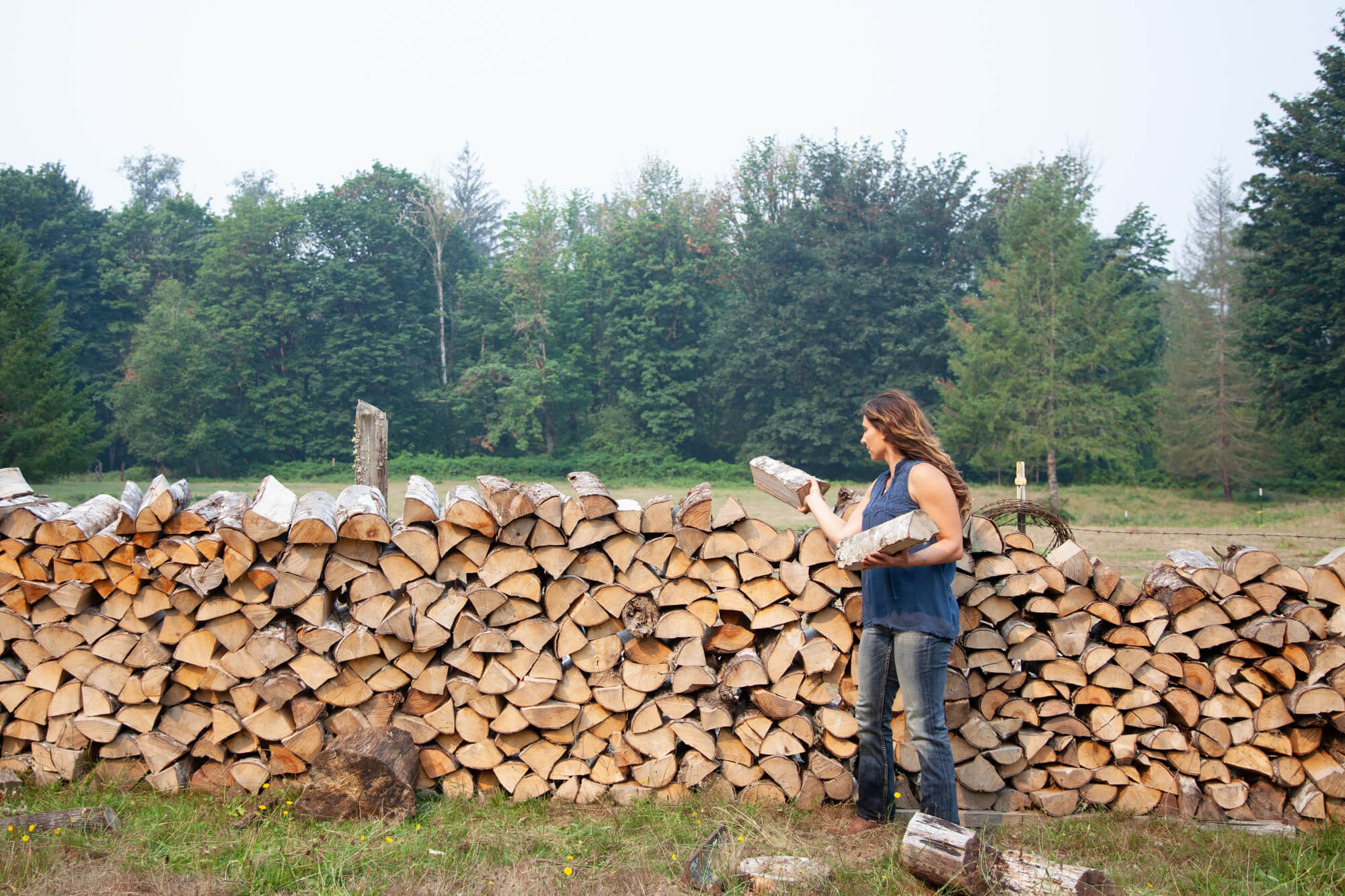
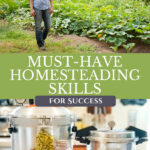
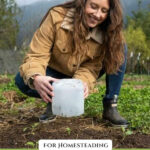
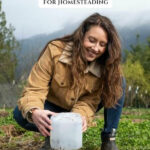
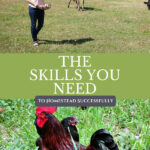
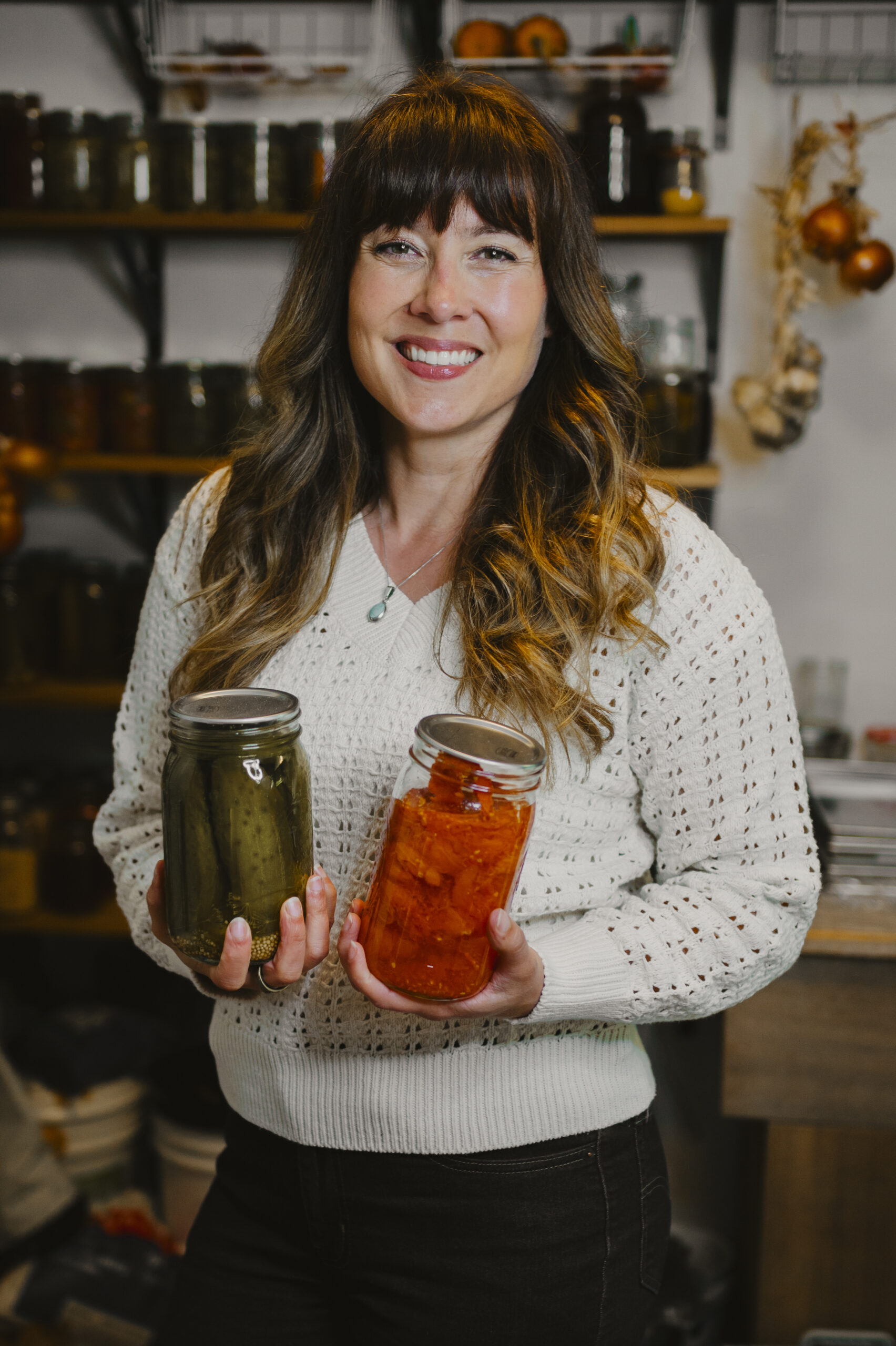
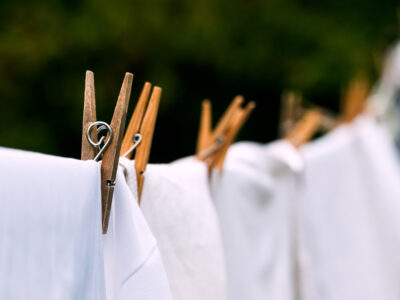
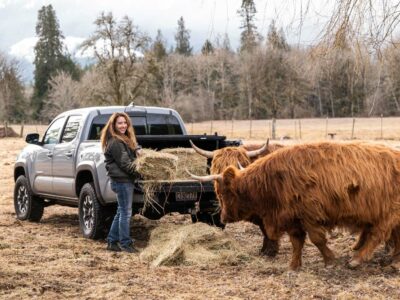
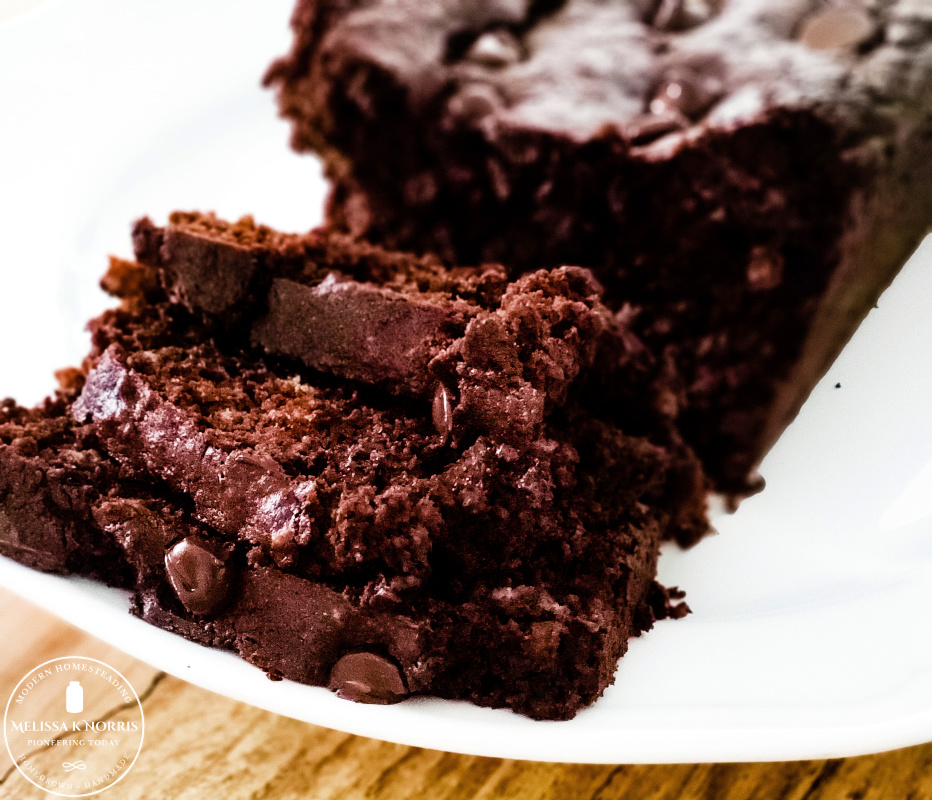
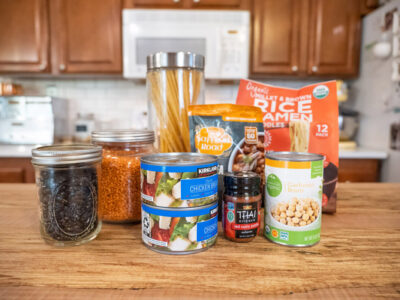
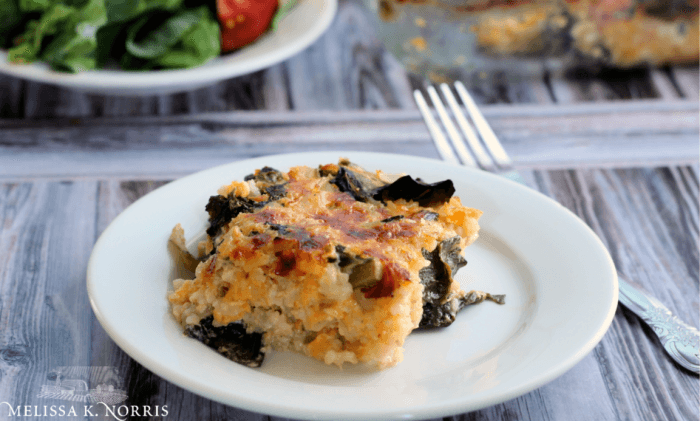
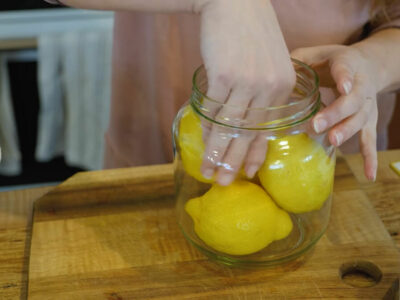
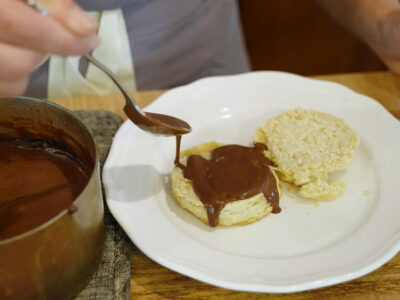
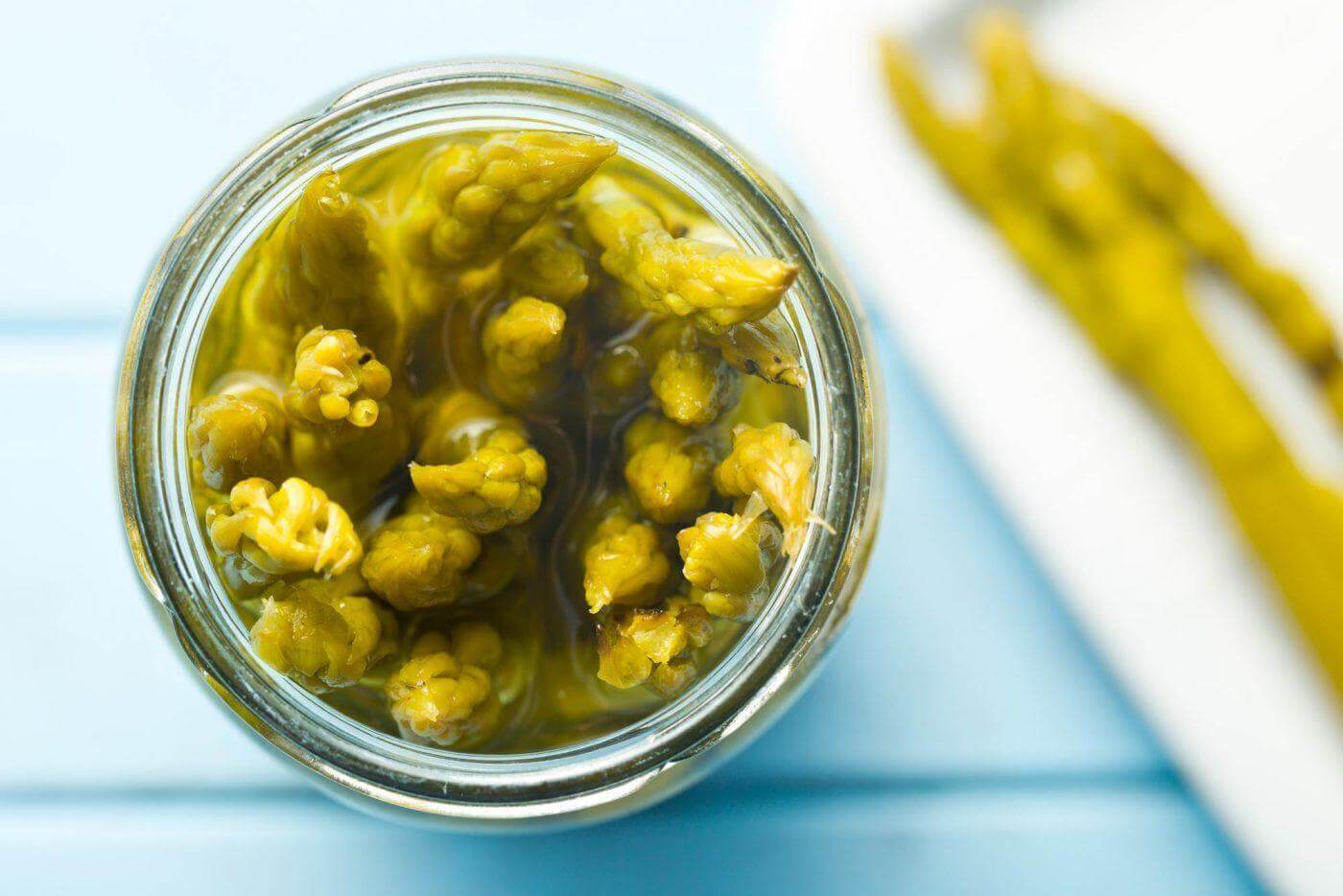

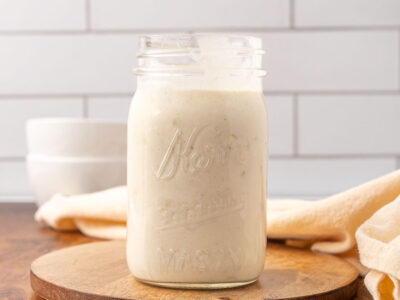
Hey there, my name is Sawyer!
I’m gonna get straight to the point. I really like your content, (especially your last vid) but I haven’t noticed you guys at all on any short form content platforms. Clipping long form videos into short form content is an extremely tedious, time consuming process. I was wondering if you’d be interested in hiring me to clip your videos and turn them into short form content to post wherever you please so you can focus on more important things. Basically this means way more eyes on your videos and website resulting in way more revenue. That’s pretty much it though, if you think you might be interested in this just let me know!
P.S. ( I usually don’t send creators messages like this but I am a big fan of you so I thought it was worth a shot)
Thank You!
Yes yes! I would love to see this series expanded. Even past the level one, into intermediate ideas and techniques. We currently live at the end of the cul-de-sac in a Suburban neighborhood, but I am very nearly about to buy a piece of property that we can begin building our heritage on. We have many of these skills you list, though that does not mean I have any less apprehension to dive, but would love to hear more on essential skills.
You had a place where we could order flour or berries for long term storage for bread baking.
Would you give that information out again please.
I really hope this becomes a series. I would like to use it as a sort of syllabus to help teach the basics to my daughters. While I was taught and passed onto them home making skills, It’s a different ball game to teach them (and myself) from a homesteading perspective. I am a hand weaver so I already hand weave towels, blankets, rugs, and material for clothing and home decor.
I loved this postcast episode. I would love for you to continue with this topic and expand. We are developing our own homestead.
I was just asking myself the other day, how do homesteaders do this. How do they manage their time, organize their endeavors, when to start a new endeavor. How do I ENJOY this amazing life!!! Please show me, lol
This was helpful and inspiring. I’d love more of this series!
This was a great episode and – what I hope is – a wonderful introduction to the rest of this series! Thank you for your insights and for offering practical motivational techniques.
I really enjoyed this podcast episode! It helped me to understand where is the best place to start in learning homesteading skills. Many great ideas and info. to go ahead and and start now. Plus hearing about a good mindset is truly so important. We can’t do much without a focused can do mindset. Thank you!
Please continue with this series. Great, practical advice given here as it gives me a list of skills to acquire or hone the ones I already have. And I love the scripture you shared. Thank you!
I would love to learn more…I do have a few questions back to step one…do you have any favorite cookbooks to start with…I can cook quite a few from scratch but Inwould love to learn more and get better…two…AM I missing the show notes? I was actually hoping to find a link to the sheets you mentioned…ours has a tear and we are needing more so wanted to look into these ones…thanks!
I’d love for you to continue this series!
Just come in from the heat for a coffee and read this. Yvonne and I have just moved to west Norfolk (uk) and taken on a one acre plot. We love it when our friends come over and we can tell them all about the latest things we have found out about ? every day is a school day x
I really should have paid more attention in the kitchen growing up, mom did all this. Worse yet, I was a home economics major in college specializing in child development, and didn’t really pay attention in my food/nutrition class. That would help with my health issue of fatty liver and cholesterol
I thoroughly enjoyed this podcast.
My Dad use to salt cure our hog meat but I do not know the process.